#and there are eight!!! Different types of introvert
Explore tagged Tumblr posts
Text
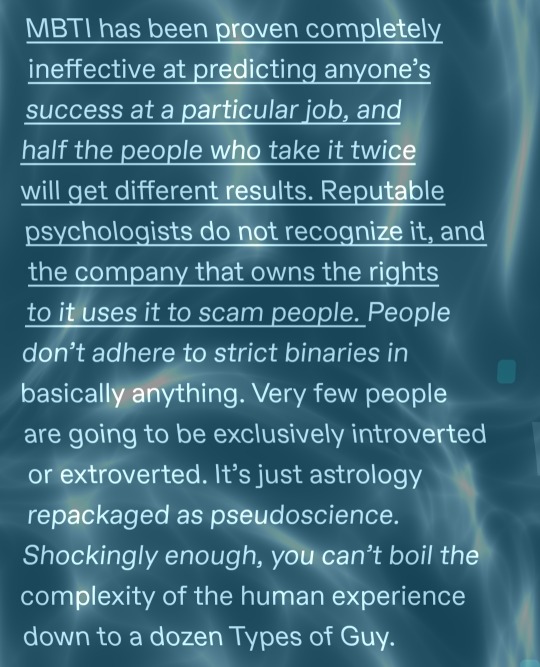
you know what though
Another way to say this is "about half the people who take the test get the same results every time" and "It's controversial" and "It can be reductive for some people" and "it shouldn't be used for hiring decisions" and "the monetary for-profit corporation that charges money to administer the test has a vested interest in promoting it as a miracle elixir"
and I'm actually sick to fucking death of "it works quite well for about half the people who take it and at the same time it's overhyped" turning into "This is total nonsense that never ever works for anyone in any situation ever, it's complete and utter bunk, and the 50% of test-takers who say it's not always total bunk are just idiots lying to themselves"
I bet you 500$ USD that OP can't actually define introversion as used by MBTI. Spoiler: it's actually not a binary one-or-nothing "horrible misanthrope who hates everyone" or "Bubbly cheerleader who loves running parties every single day".
(also the fact that they don't know there are sixteen types*, not twelve, says to me that they completely turned their brain off as soon as someone said "It's like secular astrology!!!!" which is only true if you do it wrong and assign types by birthday, which is not how this works.)
Sorry, but MBTI is not in the same fucking category as astrology, IQ, Love Languages or whatever the fuck other pop psychology thing that makes you mad.
*Type. Pay attention to that word. Type doesn't mean "exact, photographically detailed picture of every single thought, decision and emotion that this person has throughout their entire life from birth to death with absolutely no variation". It's a type. A subgroup. Tendencies. Likelihoods. Patterns.
It doesn't work for you. That doesn't mean I'm lying to myself because I can tell where you're jumping to conclusions about why it doesn't work for you.
#typically misunderstandings come from people unfamiliar with the concept of 'percentages'#it's not an on off switch it's a radio slider#it's also people assuming that it's trying to be much more definitive than it is#it's also people refusing to engage with the meanings of words in the context of mbti#introversion is a specific thing it's not just 'likes alone time sometimes'#and there are eight!!! Different types of introvert#and that's not even fucking getting into the concept of a fucking ambivert which is a thing#I'm sorry but it just drives me batshit bananapants when people decide MBTI doesn't work#so they refuse to even double check and see if their basic understanding of what it is is correct#and it's not correct#but they take every 'hey you're wildly misunderstanding like#the whole system on a fundamental level' as a sign they're super smart and superior#like no dumbass I'm saying you're wrong lmao#saying you're wrong when you're wrong is not a sign that you're secretly right#you're being a smug jackass about this specific subject because you don't understand how little you understand it
14 notes
·
View notes
Text
BSD MEN AND MBTI TYPES [+ their darlings]

So, I’m not sure how many are aware of what MBTI is, but I got a few requests on making an analysis about this for BSD MEN and incorporating their ideal type! darlings’ MBTI types as well, so I did. (I kind of promised that I would do it, so now is the time.)❤️
I want you to know, it wasn’t intentional to place one type as the ideal match for multiple characters. I thought it through thoroughly and did my best to remain as logical and diverse in MBTI types as possible. It’s just that strong Fe users are often a good match for broken people and…well…BSD men are mostly broken.
Here is a brief explanation what MBTI and cognitive functions are, for those who are not familiar with it. If you are familiar with it, you can simply skip to the next paragraph under the thinner cut.❤️

Explanation MBTI: The Myers-Briggs Type Indicator (MBTI) is a tool used to understand different personality types based on how people prefer to interact with the world and make decisions. Created by Isabel Briggs Myers and Katharine Cook Briggs, it’s based on ideas from Carl Jung about how people think and behave. MBTI types are 16 four-letter combinations such as INFP or ESTP, that are designed with each 4 primary cognitive functions that are being used frequently by each person. There are 8 cognitive functions, and we all use all of them, however, 4 are always the most comfortable and prominent.
Detailed Explanation of Cognitive Functions: Cognitive functions are specific mental processes that shape how we understand and interact with the world. Each function has a particular role and works in conjunction with others to influence personality. Here’s a closer look at each of the eight cognitive functions:
1. Extraverted Sensing (Se): This function involves focusing on the present moment and taking in information through the senses. People who rely on Se are very aware of their surroundings and enjoy engaging with their environment actively. They tend to live in the moment and respond to immediate sensory experiences.
2. Introverted Sensing (Si): Si involves recalling past experiences and using that information to understand the present. People with strong Si focus on details and how things have been done before. They rely on their memories and internal impressions to make sense of the world.
3. Extraverted Intuition (Ne): Ne is about exploring possibilities and seeing connections between different ideas. Those who use Ne are good at brainstorming and considering multiple potential outcomes. They enjoy thinking about future possibilities and spotting patterns that aren’t immediately obvious.
4. Introverted Intuition (Ni): Ni involves forming insights and understanding future implications based on internal reflections. People with dominant Ni often have a clear vision of how things might unfold and focus on long-term outcomes and deep, conceptual understandings.
5. Extraverted Thinking (Te): This function focuses on organizing and structuring the external world based on logic and efficiency. People who use Te prioritize objective criteria and practical solutions, often seeking to improve systems and achieve measurable results.
6. Introverted Thinking (Ti): Ti involves analyzing and refining ideas based on internal logic. Individuals with strong Ti prefer to understand concepts deeply and develop their own internal frameworks for how things should work. They value precision and consistency in their thoughts.
7. Extraverted Feeling (Fe): Fe is concerned with understanding and responding to the emotions and needs of others. People with strong Fe are focused on creating harmony in their social environments and are sensitive to the feelings of those around them. They often work to ensure that everyone’s needs are met and that social interactions are smooth.
8. Introverted Feeling (Fi): Fi involves making decisions based on personal values and internal emotional responses. Those with dominant Fi focus on staying true to their own principles and beliefs. They prioritize authenticity and personal integrity, making choices that align with their internal values.
Each MBTI personality type has a specific hierarchy of these functions. The dominant function is the primary way a person interacts with the world, while the auxiliary function supports it. The tertiary function is less developed, and the inferior function is the least developed and often a source of stress or growth.

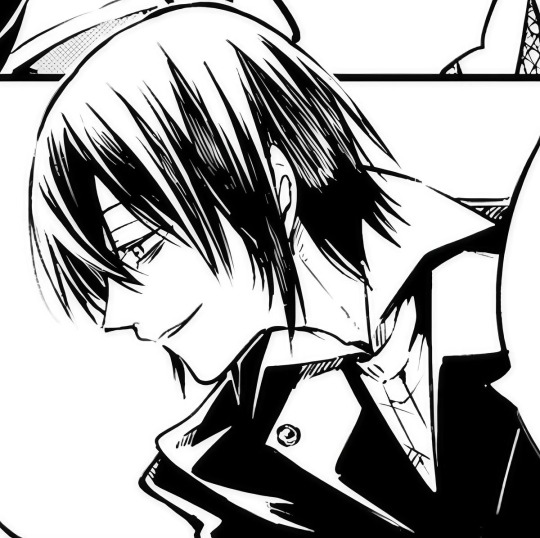

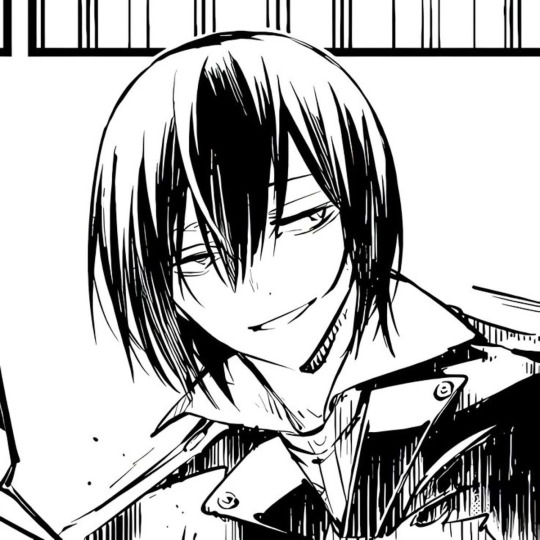
FYODOR DOSTOEVSKY
INTJ (The Mastermind/Architect) - Ni > Te > Fi > Se
Fyodor's dominant function, Introverted Intuition (Ni), reveals itself in his visionary, long-term thinking and his deep strategic foresight. Fyodor operates on a plane that transcends the immediate and the obvious.
He sees patterns, connections, and the potential outcomes of his actions far into the future, often perceiving the world in ways that others simply cannot comprehend.
His overarching goal—to cleanse humanity of its sins—demonstrates a profound understanding of abstract concepts and an almost prophetic ability to see beyond the present, traits quintessential to a dominant Ni user.
Next, we have Extroverted Thinking (Te), Fyodor's auxiliary function, which he employs with ruthless efficiency. His actions are driven by a need to impose order and structure on the chaotic world around him, aligning perfectly with Te's desire for effectiveness and productivity.
Fyodor’s methods, while morally ambiguous, are meticulously planned and executed with precision. This function supports his Ni visions, allowing him to implement his grand schemes with logical, calculated steps.
His ability to manipulate people and situations to his advantage is a direct result of Te’s influence, prioritizing objective outcomes over personal feelings.
His tertiary function, Introverted Feeling (Fi), is less overt but still crucial to understanding his character.
While Fyodor presents a cold, calculating exterior, his actions are ultimately guided by an internal value system—no matter how warped it might seem.
Fyodor's Fi manifests in his unwavering belief in his mission and his disdain for those who fail to meet his moral standards. He perceives himself as a savior of humanity, driven by an intrinsic sense of right and wrong that only he truly understands.
This Fi also explains why Fyodor is so selective about who he allows into his inner world. A potential darling, for instance, would need to align with his deeply held values, reinforcing the notion that Fyodor’s emotional connections are reserved for those who resonate with his internal compass.
Lastly, Fyodor’s inferior function, Extroverted Sensing (Se), is the least developed, manifesting in his apparent disconnection from the physical world.
Unlike characters who thrive on sensory experiences, Fyodor often appears aloof and detached from his surroundings. His focus on abstract ideas over tangible realities suggests a discomfort with Se.
He surrounds himself with serene and controlled environments—places where sensory overload is minimized, and he can concentrate on his internal visions. This discomfort with the physical world further isolates him, reinforcing his preference for solitude and reflection.
In conclusion, Fyodor embodies the traits of an INTJ through his dominant Ni, which allows him to see far-reaching possibilities and plan accordingly; his auxiliary Te, which drives his strategic actions and manipulations; his tertiary Fi, which shapes his personal values and judgments; and his inferior Se, which leads to a disconnect from the immediate physical world.
These cognitive functions, taken together, explain his complex and morally ambiguous character, as well as his potential preferences in a partner—someone who would understand and complement his internal world without disrupting the carefully constructed order he seeks to maintain.
His darling: INFP - Fi > Ne > Si > Te
or INFJ - Ni > Fe > Ti > Se
INFP (The Mediator / Idealist):
In the intricate labyrinth of Fyodor’s mind, where Introverted Intuition (Ni) reigns supreme (this sounds so serious lmao), an INFP female darling would offer an unparalleled balance and harmony.
Her dominant function, Introverted Feeling (Fi), would resonate deeply with Fyodor's own Fi, albeit in a more developed and nuanced form.
While Fyodor’s Fi is selective, almost reclusive, it is this very selectiveness that makes an INFP’s Fi the perfect match. She possesses an intrinsic moral compass, one that is authentic and unwavering, but unlike Fyodor’s, it is deeply empathetic.
Her Fi would draw out the softer, more vulnerable aspects of his tertiary Fi, helping to humanize the rigid internal values that guide his every move.
The INFP’s Extroverted Intuition (Ne), her auxiliary function, would offer Fyodor something he might not even realize he craves—a partner who can perceive multiple possibilities and ideas without being constrained by rigid logic or efficiency.
Her Ne would inject a sense of wonder and exploration into Fyodor’s meticulously controlled world. Unlike the ruthless precision of his Te, her Ne is imaginative, often seeing potential in areas Fyodor’s Ni might overlook (seriously, this man would NEVER overlook anything but let’s stick to that for the narrative).
This openness to possibility would challenge Fyodor, gently encouraging him to see beyond his single-minded visions, adding layers of depth to his already profound insights.
Furthermore, the INFP’s Introverted Sensing (Si) as a tertiary function would provide a subtle, yet grounding influence on Fyodor.
While Fyodor’s inferior Se leaves him disconnected from the physical world, the INFP’s Si, though not dominant, would allow her to appreciate the simple, sensory experiences of life.
She could offer Fyodor a gentle introduction to these experiences, helping him connect, even briefly, with the present moment. Her Si would serve as a quiet anchor, providing stability without overwhelming his discomfort with Se.
Lastly, her Extroverted Thinking (Te) as an inferior function would ensure that while she respects Fyodor’s logical and structured approach, she would not challenge his authority or disrupt the order he values so highly. Instead, her Te would emerge in moments when practicality is required, complementing Fyodor’s own Te without competing with it.
This would create a dynamic where she supports his strategies and plans, but with a gentle touch that allows his Te to dominate, thus preserving the balance of power in the relationship.
In conclusion, an INFP female darling would not only complement Fyodor’s complex INTJ personality but would also provide a much-needed counterbalance to his intensity.
Her Fi would resonate with his, but with a warmth and empathy that could soften his cold, calculating exterior. Her Ne would challenge and expand his Ni, offering new perspectives and possibilities.
Her Si would ground him, even if only slightly, in the present moment, while her inferior Te would respect and subtly support his strategic dominance.
Together, they would form a partnership where his visionary goals are met with understanding, warmth, and a touch of whimsy—qualities that, in the end, may be precisely what Fyodor needs, even if he cannot fully articulate it.
INFJ (The Advocate/Counselor):
An INFJ female darling would be the second-best match for Fyodor, harmonizing with his complex, enigmatic nature while still offering a dynamic that enriches his inner world.
As an INFJ, her dominant function, Introverted Intuition (Ni), aligns perfectly with Fyodor's own Ni, creating a profound connection rooted in their shared ability to perceive the world through abstract, visionary lenses.
This mutual understanding of the intangible and the hidden would foster a relationship where both partners feel deeply understood, even in their most esoteric thoughts. Fyodor, who often finds himself isolated in his strategic foresight, would find in the INFJ a partner who not only comprehends but complements his intuitive depth.
Her Extroverted Feeling (Fe) as an auxiliary function introduces a crucial element of emotional intelligence that Fyodor lacks. While Fyodor’s tertiary Introverted Feeling (Fi) shapes his internal value system, it is often cold, detached, and selectively applied.
The INFJ’s Fe, however, is outwardly focused, naturally attuned to the emotions and needs of others. This function would provide Fyodor with a compassionate, empathetic counterpart who can navigate social dynamics and offer a broader perspective on human emotions—something his Te might dismiss as irrelevant.
The INFJ's Fe would soften Fyodor’s rigid moral judgments, gently encouraging him to consider the emotional consequences of his actions, thereby broadening his understanding of the world beyond his own internal values.
Moreover, the INFJ's Introverted Thinking (Ti), her tertiary function, would subtly complement Fyodor's auxiliary Te. While her Ti is less overt, it allows her to engage in deep, reflective thinking, often uncovering logical inconsistencies or hidden truths in complex situations.
Her Ti would not threaten his Te-driven need for control and order but would instead offer a nuanced, thoughtful perspective that Fyodor could appreciate, particularly when his Ni-driven visions require careful refinement.
This quiet analytical ability would appeal to Fyodor's Te, creating moments of intellectual synergy where both can engage in strategic planning and problem-solving.
Lastly, the INFJ's Extroverted Sensing (Se) as an inferior function mirrors Fyodor's own inferior Se, establishing a shared discomfort with the immediate, sensory world.
This mutual weakness might initially seem like a drawback, but it would actually deepen their bond. Both partners would understand and respect each other's preference for controlled, serene environments, where they can retreat from the overwhelming demands of the physical world.
Their shared Se would reinforce their tendency towards introspection and visionary thinking, ensuring that their relationship remains focused on the abstract, the intellectual, and the strategic.
In conclusion, an INFJ female darling offers Fyodor a harmonious blend of shared intuitive depth and complementary emotional intelligence.
Her Ni resonates with his, creating a deep, almost mystical connection, while her Fe introduces warmth and empathy into his otherwise cold, calculated world.
Her Ti supports and refines his Te-driven plans without challenging his authority, and their shared inferior Se creates a mutual understanding of their need for isolation from the sensory overload of the external world.
While an INFP might provide a softer, more whimsical counterbalance, the INFJ offers a partnership rooted in shared vision and mutual understanding, making her the second-best match for Fyodor's complex, INTJ personality.

DAZAI OSAMU
ENTP (The Debater / Visionary) - Ne > Ti > Fe > Si
Dazai’s dominant function, Extraverted Intuition (Ne), reveals itself in his constant exploration of possibilities and his ability to see multiple angles in any situation.
Dazai operates in a world of endless potential, always considering what could be rather than what is. This makes him unpredictable and difficult to pin down, as he is always a step ahead, contemplating outcomes and scenarios that others might overlook.
His strategic brilliance is a direct result of his Ne, allowing him to manipulate events and people with a creativity that is unmatched.
Dazai’s love for chaos and his playful, almost mischievous nature also stem from this dominant function, as he thrives in environments where he can test boundaries and explore new ideas.
Next, we have Introverted Thinking (Ti), Dazai’s auxiliary function, which he uses to analyze situations with a cold, logical precision.
Ti drives Dazai to understand the underlying mechanics of the world around him, breaking down complex problems into their fundamental components. This function is what gives Dazai his sharp, analytical mind, allowing him to devise intricate plans and see through the facades of others.
His Ti also explains his philosophical musings and existential questioning, as he is constantly trying to make sense of the world and his place in it. Despite his often lighthearted demeanor, there is a deeply intellectual side to Dazai that is always at work, dissecting and evaluating everything he encounters.
His tertiary function, Extraverted Feeling (Fe), is less prominent but still plays a crucial role in how Dazai interacts with others. While he often comes across as detached, Dazai is acutely aware of social dynamics and the emotions of those around him.
He uses this awareness to his advantage, charming or manipulating others as the situation requires. Fe allows Dazai to adapt to different social environments effortlessly, making him a social chameleon who can navigate complex interpersonal relationships with ease.
However, this function also reveals a more manipulative side to Dazai, as he tends to use his understanding of emotions not to connect with others, but to influence and control them.
Lastly, Dazai’s inferior function, Introverted Sensing (Si), is the least developed, manifesting in his apparent disconnection from tradition and the past.
Unlike characters who draw strength from their memories or rely on established routines, Dazai is often seen rejecting or ignoring these aspects of life.
His Si deficiency is evident in his restless nature and his constant search for new experiences, as he struggles to find meaning or stability in what has already been.
This disconnect from Si also contributes to his existential despair, as he finds it difficult to ground himself in any lasting sense of identity or purpose.
In conclusion, Dazai embodies the traits of an ENTP through his dominant Ne, which fuels his endless curiosity and strategic foresight; his auxiliary Ti, which sharpens his analytical thinking; his tertiary Fe, which he uses to navigate and manipulate social interactions; and his inferior Si, which leads to a sense of disconnection from tradition and the past.
These cognitive functions, taken together, explain his complex and often contradictory character, as well as his tendency to oscillate between playful banter and deep existential reflection.
His darling: INFJ - Ni > Fe > Ti > Se
Or ENFJ - Fe > Ni > Se > Ti
INFJ (The Advocate/Counselor):
For Dazai, an INFJ female darling would be the ideal match, complementing and balancing his complex, multifaceted ENTP nature.
Dazai’s dominant Extraverted Intuition (Ne) thrives on possibilities, unpredictability, and the exploration of various outcomes, often leading him into chaotic and uncharted territories. An INFJ’s dominant function, Introverted Intuition (Ni), would resonate with Dazai’s Ne, but in a way that brings focus and depth to his endless curiosity.
While Dazai’s Ne scatters in multiple directions, the INFJ’s Ni would help him see the underlying patterns and deeper meaning behind his explorations, guiding his often chaotic energy into more purposeful and profound insights.
Her Ni would provide a sense of direction that Dazai’s Ne sometimes lacks, allowing them to explore the abstract and conceptual together, but with a shared vision rather than aimless wandering.
Her Extroverted Feeling (Fe) as an auxiliary function would offer a crucial emotional anchor for Dazai, whose Extraverted Feeling (Fe), while present, is often used more for manipulation than genuine connection.
The INFJ’s Fe, however, is deeply empathetic, focused on creating harmony and understanding in her relationships. This emotional intelligence would be a soothing balm to Dazai’s restless soul, providing the warmth and connection he often deflects with humor or detachment.
Her Fe would help Dazai engage with his own emotions more honestly, encouraging him to forge deeper, more meaningful relationships rather than merely skimming the surface.
This would be especially significant for Dazai, whose tertiary Fe can sometimes lead him to feel disconnected from others despite his ability to read social dynamics effortlessly.
The INFJ’s Introverted Thinking (Ti), as her tertiary function, would complement Dazai’s auxiliary Ti, creating an intellectual synergy that both would appreciate.
While Dazai uses his Ti to deconstruct the world around him with sharp, analytical precision, the INFJ’s Ti would offer a quieter, more introspective form of analysis.
Her Ti would challenge Dazai’s sometimes impulsive leaps of logic, encouraging him to consider the ethical and philosophical implications of his actions more deeply. Together, their combined Ti would lead to rich, intellectual conversations, where they can explore complex ideas and theories, each offering a perspective that sharpens the other’s understanding.
Lastly, the INFJ’s Extroverted Sensing (Se), though her inferior function, would mirror Dazai’s own inferior Introverted Sensing (Si) in a way that fosters mutual understanding and growth.
Both struggle with staying grounded in the present moment and often feel disconnected from the physical world or their own past.
However, this shared deficiency would allow them to support one another, finding solace in their mutual discomfort.
The INFJ’s Se might encourage Dazai to occasionally step out of his head and experience the world more fully, while Dazai’s Ne could help the INFJ see the potential beyond what is immediately tangible.
Together, they would create a partnership that balances the abstract with the concrete, allowing them to explore both the potential of the future and the reality of the present.
In conclusion, an INFJ female darling would not only complement Dazai’s ENTP nature but also provide the emotional depth, intellectual stimulation, and intuitive insight that he often seeks but struggles to find.
Her Ni would bring focus to his Ne, her Fe would offer genuine emotional connection where his Fe might falter, her Ti would refine his analytical thinking, and their shared challenges with Se and Si would foster a deep understanding of each other’s struggles.
This relationship would offer Dazai a rare blend of intellectual challenge and emotional support, making the INFJ the best possible partner for his complex and often contradictory character.
ENFJ (The Protagonist / Teacher):
An ENFJ female darling would be the second-best match for Dazai Osamu, providing a relationship dynamic that complements and balances his ENTP nature in several key ways.
Dazai’s dominant Extraverted Intuition (Ne) fuels his exploration of possibilities and his knack for seeing multiple angles of any situation. An ENFJ’s dominant Extraverted Feeling (Fe) would harmonize with Dazai’s Ne, but in a manner that emphasizes emotional connection and social harmony.
The ENFJ’s Fe is adept at understanding and influencing others’ emotions, which would provide Dazai with a stabilizing force, guiding his often chaotic and unpredictable Ne through a lens of empathy and relational awareness. Her Fe would help Dazai see beyond his own intellectual pursuits and appreciate the emotional impact of his actions on those around him.
The ENFJ’s Introverted Intuition (Ni) as her auxiliary function complements Dazai’s Ne by providing depth and focus to their shared explorations.
While Dazai’s Ne leads him to constantly generate new ideas and scenarios, the ENFJ’s Ni would help in distilling these possibilities into a coherent vision. This alignment between Ne and Ni would create a synergy where their ideas are not just imaginative but also strategically meaningful.
The ENFJ’s Extraverted Sensing (Se) as her tertiary function brings a practical, immediate awareness that contrasts with Dazai’s own inferior Introverted Sensing (Si).
While Dazai often struggles with connecting to the present moment and the sensory details of life, the ENFJ’s Se would offer a grounding influence.
Her ability to engage with the external environment would provide a counterbalance to Dazai’s tendency to overlook sensory experiences and tradition. This could help Dazai become more attuned to the here-and-now, enriching his experiences and providing a more balanced perspective on life.
Finally, the ENFJ’s Introverted Thinking (Ti), her inferior function, would offer a unique intellectual counterpoint to Dazai’s dominant Ti.
While Dazai’s Ti is sharp and analytical, often used to dissect and strategize, the ENFJ’s Ti, though less developed, would bring a different flavor of logical analysis.
Her Ti would provide a thoughtful, albeit less dominant, approach to problem-solving, complementing Dazai’s more assertive analytical style. This could lead to rich, nuanced discussions where her perspective enhances his own.
In summary, an ENFJ darling would offer Dazai a blend of emotional depth, strategic insight, and practical grounding.
Her dominant Fe would foster genuine emotional connections and help Dazai consider the social and emotional ramifications of his actions.
Her Ni would add depth and direction to his Ne-driven explorations, making their intellectual pursuits more coherent.
Her Se would ground him in the present, counterbalancing his detachment from sensory experiences, while her Ti would complement and refine his analytical approaches.
Together, they would form a partnership where Dazai’s intellectual brilliance is balanced by the ENFJ’s warmth, vision, and practical insight, making her an excellent second-best match for his dynamic ENTP personality.
In conclusion, an INFJ would offer Dazai deep emotional understanding and intuitive focus, complementing his Ne with depth and introspection.
In contrast, an ENFJ would provide vibrant emotional support and practical grounding, balancing his Ne with empathy and vision while offering immediate sensory awareness.
Both types would enrich Dazai’s life, with the INFJ providing profound, intuitive insight and the ENFJ offering dynamic emotional connection and practical stability.

NAKAHARA CHUUYA
ESTP ( The Entrepreneur / Dynamo) - Se > Ti > Fe > Ni
Chuuya is a character who clearly exemplifies the ESTP personality type. His energetic demeanor, tactical mindset, and grounded approach to life can be understood through the lens of this personality type, revealing a man who thrives on action, pragmatic problem-solving, and sensory experiences.
At the forefront of Chuuya’s character is his dominant function, Extraverted Sensing (Se). This function drives Chuuya’s immediate, action-oriented approach to life. He is intensely aware of his surroundings, reacting quickly to changes and seizing opportunities as they arise.
Chuuya’s preference for hands-on engagement and his readiness to dive into action reflect his high Se, which is evident in his frequent physical confrontations and his ability to handle high-pressure situations with remarkable composure.
His keen sense of fashion is also a manifestation of his Se—his attention to stylish, elegant attire and personal presentation highlights his acute awareness of his environment and his desire to make a tangible impact on those around him.
This focus on immediate, sensory experiences underscores his reliance on Se, making him a master of adapting to and manipulating his environment in real-time.
Next is Introverted Thinking (Ti), Chuuya’s auxiliary function, which supports his strategic prowess and decision-making. While Chuuya is often seen as impulsive and driven by immediate sensations, his actions are underpinned by a logical framework that guides his responses and strategies.
His Ti helps him analyze situations with a critical eye, allowing him to understand and exploit the underlying mechanics of conflicts and challenges. This function contributes to his ability to think on his feet and devise practical solutions to complex problems, aligning with his reputation as a formidable tactician within the Port Mafia.
Extraverted Feeling (Fe), Chuuya’s tertiary function, reveals itself in his interactions with others and his capacity for emotional expression.
While Chuuya may come across as brash and direct, his Fe is evident in his concern for his allies and his desire for harmony within his sphere of influence.
His loyalty and protective nature, particularly toward those he values, highlight his underlying emotional sensitivity and his need to maintain social cohesion.
Although he may not always express his feelings openly, his actions often reflect a deep-seated desire to connect with and support those he cares about, indicating that his Fe is engaged in maintaining relationships and managing social dynamics.
Finally, Chuuya’s inferior function, Introverted Intuition (Ni), is the least developed and manifests as a disinterest or discomfort with long-term planning and abstract conceptualization.
Unlike characters who are comfortable envisioning future possibilities and intricate schemes, Chuuya is more focused on the present moment and immediate concerns.
His actions and decisions are primarily driven by the current situation rather than long-term projections, suggesting that he is less inclined to engage in deep, abstract thinking.
This disconnection from Ni is reflected in his preference for direct action over speculative or future-oriented planning.
In conclusion, Chuuya embodies the ESTP personality through his dominant Se, which drives his action-oriented and sensory-focused approach, including his keen sense of fashion; his auxiliary Ti, which supports his tactical thinking and problem-solving; his tertiary Fe, which influences his emotional interactions and loyalty; and his inferior Ni, which leads to a preference for present-focused, pragmatic decisions.
His darling: ISFJ - Si > Fe > Ti > Ne
Or ESFJ - Fe > Si > Ne >Ti
ISFJ (The Protector / Defender)
An ISFJ female darling would be the ideal match for Chuuya Nakahara, providing a harmonious balance to his dynamic ESTP personality. Her dominant Introverted Sensing (Si) would offer the grounding and stability that Chuuya, with his action-oriented and spontaneous approach to life, often lacks.
Her strong connection to tradition and the past would provide a comforting anchor for Chuuya, helping him appreciate consistency and reliability, which are sometimes overlooked in his pursuit of immediate, sensory experiences.
The ISFJ’s Extraverted Feeling (Fe) would perfectly complement Chuuya’s tertiary Fe, creating a nurturing and emotionally supportive relationship.
While Chuuya’s Fe drives him to protect and connect with those he cares about, her more developed Fe would bring warmth, compassion, and an understanding of social dynamics that could soften Chuuya’s rougher edges.
Her natural ability to maintain harmony and cater to the emotional needs of others would resonate with Chuuya’s loyalty and protectiveness, fostering a deep emotional bond based on mutual care and respect.
Her Introverted Thinking (Ti), though secondary to her Si and Fe, would align well with Chuuya’s auxiliary Ti. Both would appreciate each other’s logical approach to problem-solving and decision-making.
Her Ti would offer a calm, methodical perspective that could help Chuuya refine his strategies and think through the consequences of his actions more thoroughly, especially in situations where his impulsive nature might otherwise lead him astray.
Lastly, the ISFJ’s Extraverted Intuition (Ne), as her inferior function, would introduce a subtle yet valuable element of novelty and open-mindedness into the relationship. While her Ne is less dominant, it would still encourage Chuuya to occasionally consider new possibilities and explore ideas beyond his immediate focus.
This would add a refreshing dynamic to their relationship, allowing them to grow together as they explore new experiences within the safety and security of their shared bond.
In conclusion, an ISFJ female darling would provide Chuuya with the stability, emotional support, and subtle encouragement he needs to thrive both personally and within his intense lifestyle. Her grounding Si, nurturing Fe, logical Ti, and adaptable Ne would create a balanced and fulfilling relationship, making her the best match for Chuuya’s ESTP personality.
ESFJ (The Provider / Consul)
An ESFJ female darling would be an excellent second option for Chuuya Nakahara, offering a complementary dynamic to his ESTP personality. Her dominant Extraverted Feeling (Fe) would naturally resonate with Chuuya’s own Fe, albeit at a more developed level, creating a relationship built on mutual emotional understanding and a strong sense of loyalty.
While Chuuya’s Fe drives him to protect and maintain harmony within his circle, her Fe would bring an even deeper focus on fostering social connections and ensuring that the emotional needs of those around them are met.
This shared focus on relationships would strengthen their bond and make them a formidable team when it comes to navigating the social complexities of their world.
The ESFJ’s Introverted Sensing (Si), as her auxiliary function, would offer Chuuya the stability and groundedness he sometimes lacks in his spontaneous and action-driven approach to life.
Her strong connection to tradition and the past would provide a comforting and steady influence, helping Chuuya to appreciate the value of consistency and reliability in both his personal life and his role within the Port Mafia.
This would be especially valuable in moments when Chuuya’s dominant Se might lead him to prioritize the thrill of the present over long-term stability.
Her tertiary Extraverted Intuition (Ne) would also introduce a subtle, yet important element of adaptability and creativity into their relationship.
While Chuuya’s focus is often on the immediate and concrete, her Ne would encourage him to explore new ideas and possibilities, adding a layer of flexibility and innovation to their partnership.
This could help Chuuya think beyond the immediate and consider different perspectives, which could be particularly useful in his tactical decision-making.
Finally, the ESFJ’s Introverted Thinking (Ti), though less developed, would complement Chuuya’s auxiliary Ti by providing a more structured and methodical approach to problem-solving.
Her Ti would help balance Chuuya’s sometimes impulsive decision-making, encouraging him to consider the logical implications of his actions in a more deliberate manner.
In summary, an ESFJ female darling would be a wonderful partner for Chuuya, offering emotional depth, stability, and a complementary approach to both their social and practical lives.
Her Fe and Si would harmonize well with Chuuya’s own functions, while her Ne and Ti would provide subtle but important enhancements to their relationship, making her an excellent second-best option for Chuuya’s ESTP personality.

NIKOLAI GOGOL
(I will update this!)
ENTP (The Debater / Visionary) - Ne > Ti > Fe > Si
This one was hard, he is not easy to type. I considered ENFP < ESFP and < ENTP. I ended up picking ENTP for him.
Extraverted Intuition (Ne), the ENTP's dominant function, manifests vividly in Nikolai's boundless exploration of ideas and possibilities. His constant drive to test boundaries and challenge conventional norms speaks to an ENTP's relentless pursuit of novel experiences and understanding.
Nikolai’s actions, driven by a desire to prove his liberation from emotional constraints, are classic Ne — his approach to life is experimental and driven by a fascination with the abstract and unconventional.
His decision to engage in morally questionable acts to demonstrate his freedom from human limitations further illustrates his inclination toward exploring and expanding his conceptual horizons, a hallmark of Ne’s propensity for envisioning endless possibilities.
Introverted Thinking (Ti), the auxiliary function of an ENTP, underpins Nikolai’s strategic and analytical nature. Despite his apparent recklessness, Nikolai's actions are meticulously calculated to achieve his goal of emotional and psychological transcendence.
His ability to analyze and deconstruct situations logically, while crafting elaborate plans to prove his independence from societal norms, underscores the role of Ti. This function supports his propensity for complex problem-solving and his knack for understanding the underlying principles of his actions, even if those principles involve pushing ethical boundaries.
Extraverted Feeling (Fe), as the tertiary function, reflects Nikolai’s awareness of social dynamics and his manipulation of them to serve his ends. While Nikolai exhibits a certain detachment from the emotional impact of his actions, his awareness of and strategic use of social interactions are indicative of Fe.
He navigates social contexts with a calculated precision, aiming to influence and manipulate perceptions to align with his personal ideals. This function reveals his skill in using emotional insights to further his agenda, even as he maintains an outward appearance of detachment.
Introverted Sensing (Si), the inferior function, highlights Nikolai's lesser focus on detailed past experiences and established conventions. ENTPs typically exhibit a less pronounced interest in the specifics of past experiences, preferring instead to innovate and explore new possibilities.
Nikolai’s disregard for the emotional weight of his actions and his preference for forward-thinking experimentation over reflective consideration of past experiences align with Si’s inferior role. His approach to life is characterized by a focus on present and future possibilities rather than a detailed engagement with past experiences.
In summary, Nikolai Gogol embodies the ENTP personality type through his dominant Ne, which drives his exploration of unconventional ideas and possibilities; his auxiliary Ti, which supports his strategic and analytical thinking; his tertiary Fe, which influences his social manipulation and awareness; and his inferior Si, which reflects his limited focus on past details and experiences.
His darling: ENFJ (Fe>Ni>Se>Ti)
Or ESFJ (Fe>Si>Ne>Ti)
ENFJ (The Protagonist / Teacher):
An ENFJ female darling would be the ideal match for Nikolai Gogol, perfectly complementing and balancing his ENTP personality with her emotional intelligence, visionary thinking, and ability to bring out the best in others.
Her dominant Extraverted Feeling (Fe) would be crucial in connecting with Nikolai on an emotional level, something he often neglects due to his detached and experimental approach to life.
Her natural empathy and understanding of social dynamics would allow her to navigate Nikolai’s complex personality, helping him engage with the emotional consequences of his actions and bringing a sense of humanity to his otherwise abstract pursuits.
Her Introverted Intuition (Ni) would align beautifully with Nikolai’s dominant Ne, providing a sense of shared vision and purpose. While Nikolai is constantly exploring new possibilities and pushing boundaries, the ENFJ’s Ni would offer a deeper, more focused perspective, helping him to see the long-term implications of his actions and to channel his boundless creativity towards meaningful goals. This partnership would enable Nikolai to balance his constant experimentation with a more grounded and purposeful approach to life.
The ENFJ’s Extraverted Sensing (Se), as her tertiary function, would complement Nikolai’s auxiliary Ti by helping him stay connected to the present moment and the tangible world around him.
While he is often caught up in abstract ideas and strategic thinking, her Se would encourage him to appreciate the immediate beauty of life, grounding his experiences in reality. This would help Nikolai to not only plan and theorize but also to enjoy and engage with the present in a more sensory, fulfilling way.
Finally, the ENFJ’s Introverted Thinking (Ti), though less developed, would still offer a subtle, logical structure that could help Nikolai refine his thoughts and ideas.
Her Ti would gently support his complex problem-solving processes, ensuring that his plans and strategies are both emotionally and logically sound. This balance would help Nikolai avoid the potential pitfalls of over-theorizing or becoming too detached from reality, giving him a well-rounded perspective on life.
In summary, an ENFJ female darling would provide the emotional depth, visionary focus, and practical grounding that Nikolai needs to thrive.
Her Fe would connect with him on an emotional level, her Ni would align with his visionary thinking, her Se would help him stay grounded in the present, and her Ti would offer subtle logical support. Together, these qualities would make her the best possible match for Nikolai, bringing out the best in his complex, ENTP personality.
ESFJ ( The Provider / Consul):
An ESFJ female darling would be an excellent second-best match for Nikolai Gogol, offering a grounding and nurturing presence that complements his ENTP personality. Her dominant Extraverted Feeling (Fe) would provide the strong emotional connection that Nikolai often overlooks in his pursuit of abstract ideas and unconventional experiences. Her natural empathy and desire to maintain harmony in relationships would help balance Nikolai’s more detached and experimental tendencies, encouraging him to consider the emotional impact of his actions on those around him.
The ESFJ’s Introverted Sensing (Si), as her auxiliary function, would contrast with Nikolai’s inferior Si, helping him to connect with and appreciate the past and established traditions. While Nikolai is constantly focused on exploring new possibilities and pushing boundaries, her Si would offer him a sense of continuity and stability. She could help him ground his ideas in reality by drawing on past experiences and proven methods, ensuring that his innovative approaches are not only creative but also practical and effective.
Her Extraverted Intuition (Ne), as a tertiary function, would resonate with Nikolai’s dominant Ne, creating a shared enthusiasm for exploring possibilities and generating new ideas. While her Ne is less dominant, it would still enable her to understand and engage with Nikolai’s creative mind, supporting his need for intellectual stimulation and novel experiences. This alignment would allow them to enjoy dynamic and adventurous conversations, keeping their relationship intellectually vibrant.
Finally, the ESFJ’s Introverted Thinking (Ti), though her inferior function, would offer a subtle but important balance to Nikolai’s strong Ti. Her Ti would help her understand and appreciate the logical structure of Nikolai’s thoughts, even if she doesn’t naturally prioritize logic in the same way. This would allow her to support his analytical processes while still bringing a more compassionate and emotionally aware perspective to their interactions.
In summary, an ESFJ female darling would bring emotional warmth, stability, and a shared enthusiasm for new experiences to Nikolai’s life. Her Fe would nurture and balance his more detached tendencies, her Si would ground his ideas in reality, her Ne would complement his creative exploration, and her Ti would offer subtle logical support.
These qualities make her a strong second-best match for Nikolai, helping him to connect more deeply with others while still enjoying the intellectual and creative stimulation he craves.
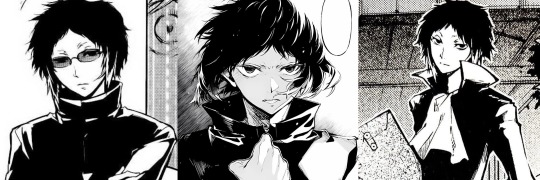
AKUTAGAWA RYUUNOSUKE
ISFP (The Adventurer / Composer ) - Fi > Se > Ni > Te
Akutagawa's dominant function, Introverted Feeling (Fi), reveals itself in his deeply personal sense of morality and the intense emotions that drive his actions. Although Akutagawa often appears cold and ruthless, his actions are motivated by a strong internal value system that he seldom reveals to others.
His need for validation, particularly from Dazai, is rooted in a profound sense of inadequacy and a desperate desire to prove his worth. This internal emotional landscape, characterized by Fi, defines Akutagawa’s motivations and underlies his quest for recognition, even as he grapples with feelings of rejection and worthlessness.
Next, we have Extraverted Sensing (Se), Akutagawa’s auxiliary function, which manifests in his acute awareness of his physical surroundings and his reactive combat style. Akutagawa thrives in high-pressure situations, where his ability, Rashomon, is wielded with precision and adaptability.
His Se drives him to engage with the world directly and immediately, making him a formidable force in battle. This function supports his Fi by allowing him to take swift and decisive action in pursuit of his personal goals, often leading to intense and violent encounters that are driven by his emotional undercurrents.
His tertiary function, Introverted Intuition (Ni), plays a subtler but significant role in his character. While Akutagawa is primarily focused on the present, there is a persistent sense of future orientation in his actions.
His Ni is evident in his long-term goal of gaining Dazai’s approval and the way he internalizes past experiences to guide his decisions. This function supports his Fi by giving him a sense of purpose and direction, even if it is often clouded by his immediate emotional responses.
Akutagawa’s Ni also manifests in his ability to foresee the consequences of his actions, though this is often secondary to his more dominant functions.
Lastly, Akutagawa’s inferior function, Extraverted Thinking (Te), is the least developed and manifests in his occasional struggle with logical organization and external structure. While Akutagawa can be strategic and methodical in battle, his approach is more often driven by his emotions and immediate sensory inputs rather than a clear, logical framework.
His Te surfaces when he attempts to impose order or efficiency in his environment, but these efforts are often overshadowed by his more dominant Fi and Se functions.
This inferior Te contributes to his difficulties in aligning his internal values with the external world, leading to a sense of frustration and conflict when his actions fail to achieve the desired results.
In conclusion, Akutagawa embodies the traits of an ISFP through his dominant Fi, which drives his intense emotional core and need for validation; his auxiliary Se, which fuels his reactive and physically engaging combat style; his tertiary Ni, which provides a sense of direction and future orientation; and his inferior Te, which occasionally struggles to impose order on his chaotic inner world.
His darling: ISFJ - Si > Fe > Ti > Ne
Or ENFJ - Fe > Si > Ne > Ti
ISFJ - (The Protector / Defender)
An ISFJ female darling would be the ideal match for Akutagawa, providing the stability, care, and emotional grounding that his turbulent ISFP personality craves.
Her dominant Introverted Sensing (Si) would offer Akutagawa a sense of continuity and reliability, something he deeply lacks in his chaotic life. Her ability to recall and value the past would help him feel anchored, offering him a safe emotional space where he can reflect on his experiences without feeling judged or misunderstood.
This grounding presence would counterbalance his reactive and intense Extraverted Sensing (Se), allowing him to find solace in a more structured, stable environment.
The ISFJ’s Extraverted Feeling (Fe) would complement Akutagawa’s deeply personal Introverted Feeling (Fi) by helping him navigate his emotions in a more outward, constructive manner. Her natural empathy and concern for others would provide him with the validation and understanding he seeks but often feels he doesn’t deserve.
Through her Fe, she would help Akutagawa express his feelings in a way that fosters connection rather than isolation, gradually teaching him that he is valued for who he is, not just for his abilities or his success in battle.
Her Introverted Thinking (Ti), while not as prominent, would provide a quiet, logical framework that could help Akutagawa make sense of his internal conflicts.
This function would assist in gently guiding him toward clearer, more structured thinking without overwhelming his emotional processes. Her Ti would act as a subtle but important counterbalance to his chaotic internal world, offering a perspective that is both patient and rational, helping him organize his thoughts and decisions more effectively.
Lastly, the ISFJ’s Extraverted Intuition (Ne), as her inferior function, would resonate with Akutagawa’s Introverted Intuition (Ni), fostering a mutual understanding of future possibilities and deeper meanings.
While her Ne is less developed, it would still complement his Ni by encouraging him to consider alternative perspectives and outcomes, subtly broadening his view without destabilizing his primary focus.
In summary, an ISFJ female darling would bring the stability, emotional support, and gentle guidance that Akutagawa desperately needs.
Her Si would provide grounding, her Fe would offer emotional understanding, her Ti would introduce subtle logic, and her Ne would complement his intuitive insights.
Together, these qualities would help Akutagawa find the balance and emotional connection he craves, making her the best possible match for him.
ENFJ (The Protagonist / Teacher):
An ENFJ female darling would be the second-best match for Akutagawa, offering him the emotional guidance and supportive leadership that could help him grow beyond his inner turmoil.
Her dominant Extraverted Feeling (Fe) would provide a nurturing and empathetic environment, allowing Akutagawa to feel understood and valued.
Her ability to connect with others on an emotional level would help him open up and express his feelings, easing his deep-seated need for validation and helping him navigate his intense Introverted Feeling (Fi) with more clarity and compassion.
The ENFJ’s Introverted Intuition (Ni) would align with Akutagawa’s own Ni, fostering a shared sense of purpose and vision. Her ability to see the bigger picture and understand the deeper implications of their actions would resonate with his need for meaning and direction.
This connection would help him focus his energy and emotions on long-term goals, providing a sense of purpose that extends beyond his immediate struggles.
Her Extraverted Sensing (Se), as her tertiary function, would complement Akutagawa’s auxiliary Se, encouraging him to engage more fully with the present moment.
While her Se is not as dominant, it would still offer a playful and dynamic energy that could help Akutagawa enjoy life’s experiences more openly and with less fear.
This would balance his sometimes overwhelming focus on immediate, intense sensory inputs, helping him approach situations with a bit more lightness and adaptability.
Lastly, the ENFJ’s Introverted Thinking (Ti), as her inferior function, would provide a subtle but important balance to Akutagawa’s chaotic internal world.
Though not her strongest function, her Ti would still offer a logical framework that could help him analyze situations more objectively. This would aid in softening the extremes of his Fi and Se, guiding him toward more balanced and thoughtful decision-making.
In summary, an ENFJ female darling would bring emotional warmth, shared vision, and a supportive, structured approach to Akutagawa’s life.
Her Fe would help him connect and express his emotions, her Ni would align with his sense of purpose, her Se would complement his present-focused intensity, and her Ti would offer subtle logical support.
Together, these qualities would help Akutagawa find emotional balance and a sense of belonging, making her an excellent match for him.
#bungou stray dogs#bsd#yandere bsd#bsd fyodor#bungou stray dogs fyodor#fyodor dostoevsky#fyodor dostoyevsky bsd#fyodor x you#dazai analysis#bungo stray dogs dazai#dazai#osamu x reader#dazai osamu#bsd chuuya x reader#bungo stray dogs chuuya#chuuya x reader#bsd chuuya#bungou stray dogs chuuya#chuuya nakahara#bsd analysis#bsd dazai#bsd nikolai gogol#bsd nikolai#bsd akutagawa#akutagawa ryuunosuke#mbti personalities#bsd mbti#mbti#MBTI analysis#bungou stray dogs dazai
228 notes
·
View notes
Text
Till is definitely an INFP (1/5)
Happy Birthday Till! - you chronically misunderstood soul. You live up to your personality type to a T. I recently learned Vivinos is an INFP. I figured someone on the team must be to write Till so precisely without any overlap of other personality types. I watched detailed videos on all sixteen personality types and no other ones matched.
I didn't know anything about MBTI when I first started researching his personality type. Once I learned about it, I was shocked people would think he's anything else. I'm aware there's skepticism in the fandom about his designation, so I want to first consider the traits commonly associated with INFPs:
gentle
empathetic
compassionate
sincere
humble
sensitive
timid
innocent
optimistic
idealistic
daydreamer
childlike
curious
stubborn
creative
passionate
independent
individualistic
non-conformist
peace-revering
This may make it seem like he's something else. After all, how can he be so aggressive and violent if his personality type is focused on healing and pacifism? But MBTI isn't about a list of traits but rather how you think. If you understand how his mind works, it becomes a lot easier to recognize why he acts the way he does.
What is MBTI?
MBTI is NOT extrovert vs introvert, intuition vs sensing, thinking vs feeling, and perceiving vs judging. It's about which of these you prioritize, your strengths and weaknesses, and what defines who you are. There are eight cognitive functions. Everyone has all eight but the order matters.
MBTI is a four letter code to determine this order:

Your second letter is your perceiving function (how you perceive the world). For Till, that's Intuition (N).
Your third letter is your judging function (how you make judgements). For Till, that's Feeling (F).

The fourth letter indicates which is your extroverted function. For Till, that's his perceiving function (P) so he uses Extroverted Intuition.

That automatically means his judging function is introverted which is Introverted Feeling.

The first letter indicates which is your primary. For Till, this in introversion (I).
So his first function is Introverted Feeling and his second function is Extroverted Intuition. We'll abbreviate these as Fi and Ne.

Your third function is the direct opposite of your second function. For Till, this is Ne -> Si: Introverted Sensing.
Your fourth function is the direct opposite of your first function. For Till this is Fi -> Te: Extroverted Thinking.
This means Till's third function is Introverted Sensing and his fourth function is Extroverted Thinking. We'll abbreviate these as Si and Te.
(Screenshots from Alexis Kingsley on YouTube)
Thus, Till's cognitive functions, in order, are:
Fi (Introverted Feeling)
Ne (Extroverted Intuition)
Si (Introverted Sensing)
Te (Extroverted Thinking)
If you're curious, for the fifth, sixth, seventh, and eighth functions, the judging and perceiving functions are in the same order with opposite extroversion and introversion. For Till, that's Fe, Ni, Se, and Ti. However, you only consciously value your first four functions. You recognize and respect these traits in yourself and in other people.
What does this mean?
You'll notice every function is either defined as extroverted or introverted. These have different definitions than the common usage.
Extroversion means turning outward. It is needed for output and impact. It is focused on the external and interested in the objective.
Introversion means turning inward. It is needed for depth and clarity. It is focused on the internal and interested in the subjective.
When someone becomes too introverted, they lose impact. When someone becomes too extroverted, they become scattered.
-> What is Introverted Feeling (Fi)? (2/5)
#happy birthday till!#alien stage#alnst#alien stage till#alnst till#alien stage mizi#alien stage ivan#alnst mizi#alnst ivan#ivantill#mizitill#tillmizi#alien stage analysis#alnst analysis#if you saw this in the tag already I decided to split this into two#and then after I did that changed my mind again and decided to split it into THREE#bc I decided it'd be easier to read that way#and also easier to reblog#and then I had to repost AGAIN so it'd all be in order#and now it's five as you can see orz#tw: long post
28 notes
·
View notes
Note
could u tell us more about each mbti type in general ? ur post about the whc characters was so interesting <3
i'm glad you enjoyed my post about whc, and of course, i'd be more than happy to brief you about mbti. however, i hope you don't regret asking this question, because you might have unleashed a beast.
so, get ready for a quick mbti class! here's a little cheat sheet i made for your reference:
so basically, mbti operates on cognitive functions, which are just the mental processes we rely on to make decisions and understand the world. there are eight functions total, and each one is either:
introverted or extraverted (how you engage with your inner self versus how you engage with the external world)
judging or perceiving (deciding versus observing)
everyone has all eight functions, but in different orders. your mbti “type” (like INFP, ESTJ, etc.) is based on which four you use the most, and especially your top two, called the dominant and auxiliary functions. these two shape most of your personality.
if your dominant function is a perceiving function (N, S), then your auxiliary function would be a judging function (T, F). if one is extraverted, the other is introverted.
so if you're an ISTJ, for example, that doesn't mean you don't perceive at all. the S in ISTJ helps you perceive (through sensing), while the T helps you judge. J in your mbti just means that your judging function (T) makes the external part of your personality (so, Te), while your perceiving function (S) is who you are on the inside, (so Si).
now that we have that out of the way, let me brief you on all 16 mbti types, based on their dominant/auxiliary function pairings:
INFP (Fi-Ne)
to explain functions a bit: an INFP's dominant function is Fi (introverted feeling), which means their personal values and emotions are very inward, deep, and individual.
their auxiliary is Ne (extraverted intuition), so they interpret the world through patterns, ideas, and possibilities, very externally focused.
so INFPs tend to be thoughtful, emotionally independent, and idealistic. they care a lot about authenticity and inner peace, and they love exploring new ideas and meanings behind things.
ENFP (Ne-Fi)
ENFPs lead with extraverted intuition, constantly scanning for possibilities, ideas, connections. their secondary function, Fi, means they check those ideas against their personal values.
they’re outwardly energetic, spontaneous, and full of big-picture thinking, but they’re also quietly principled and sensitive under the surface.
the difference between ENFP and INFP isn't that one is an extrovert and the other is an introvert (though that might be the case, a lot of times). it just means that ENFP's intuition (Ne) is stronger than their feeling (Fi), while an INFP's Fi is stronger than their Ne.
INFJ (Ni-Fe)
introverted intuition (Ni) leads INFJs to focus inwardly on abstract insights, long-term patterns, and “gut” feelings. Fe, their secondary, is how they connect to others, read emotional environments and try to maintain harmony.
they often come across as calm, gentle, and emotionally intelligent externally (because their external function is feeling), yet internally they can be intense and future-focused, thanks to their introverted intuition.
ENFJ (Fe-Ni)
ENFJs lead with Fe, meaning they prioritize external harmony and the emotional needs of others. their Ni makes them insightful about people’s long-term paths and potential.
they are warm, empathetic leaders, often guiding others with a mix of emotional intelligence and quiet vision.
again the difference between ENFJ and INFJ is that ENFJs rely on their external function (Fe) more, while INFJs rely on their internal function (Ni) more.
INTP (Ti-Ne)
Ti (introverted thinking) leads INTPs to analyze things logically and independently. paired with Ne, they explore endless possibilities, ideas, and patterns.
they’re deeply curious, skeptical, and abstract in their thinking. they can get stuck in their heads, but that’s also where they thrive.
ENTP (Ne-Ti)
ENTPs are idea machines. their Ne drives them to chase possibilities and mentally experiment with “what-ifs.” their Ti evaluates those ideas with internal logic.
they’re witty, rebellious thinkers, drawn to novelty, debate, and intellectual play.
INTJ (Ni-Te)
Ni gives INTJs a single-minded focus on long-term visions, strategies, and future outcomes. their Te (extraverted thinking) helps them organize the external world efficiently to achieve those visions.
they’re goal-oriented, rational, and strategic; rarely loud, but always calculating the next move.
ENTJ (Te-Ni)
ENTJs lead with Te, structuring the world around them based on objective logic and efficiency. their Ni keeps them oriented toward long-term goals and intuitive predictions.
they’re decisive, commanding, and visionary; often seen as natural leaders who value competence above all.
ISFP (Fi-Se)
Fi makes ISFPs deeply value-driven and emotionally independent. Se means they perceive the world through immediate sensory experiences.
they’re artistic, grounded in the present, and often express emotion through action or creativity rather than words.
ESFP (Se-Fi)
ESFPs are vivacious and in-the-moment. their Se makes them attuned to the physical world, while Fi means they still stay true to their personal values.
they’re bold, warm, and emotionally reactive; often spontaneous with a hidden depth.
ISTP (Ti-Se)
ISTPs use Ti to assess things logically and independently, and Se to interact fluidly with their environment.
they’re adaptable, often quiet but sharp, with a love for mechanics, hands-on problem-solving, and autonomy.
ESTP (Se-Ti)
ESTPs lead with Se, reacting instantly and confidently to their surroundings. their Ti filters those perceptions with logical precision.
they’re bold, action-oriented, and love pushing boundaries, often charming and clever, with an appetite for risk.
ISFJ (Si-Fe)
Si (introverted sensing) makes ISFJs rely on past experiences and traditions, while Fe helps them care for others and maintain harmony.
they’re gentle, loyal, and highly observant of people’s needs; usually quiet, but emotionally strong and dependable.
ESFJ (Fe-Si)
ESFJs lead with Fe, actively maintaining social harmony and supporting others. Si makes them grounded in familiarity and routine.
they’re sociable, nurturing, and detail-oriented, often the “glue” that holds groups and communities together.
ISTJ (Si-Te)
Si leads ISTJs to be meticulous, detail-focused, and grounded in what they know works. Te organizes the world around them in a practical, no-nonsense way.
they’re responsible, reliable, and value order and duty above chaos or novelty.
ESTJ (Te-Si)
ESTJs are dominant Te users, they love structure, control, and results. paired with Si, they draw on past systems and rules to create stability.
they’re firm leaders, often blunt but dependable, and motivated by getting things done right.
•
so that's mbti types explained through cognitive functions in the simplest way possible. hope it helps!

#ask owl#suhosieun#mbti#mbti types#cognitive functions#mbti cognitive functions#mbti personality types#mbti personalities#infp#enfp#infj#enfj#intp#entp#isfj#esfj#istp#estp#istj#estj#intj#entj#isfp#esfp
22 notes
·
View notes
Text
Stardew Valley MBTI x Enneagram: Elliott
Following my last post about the Stardew marriage candidates and their MBTI types, I've been learning more about Enneagram, how it pairs with MBTI, and how it changes some of the typical characteristics of each type.
The Enneagram and MBTI complement each other wonderfully, providing greater depth and understanding of how a person interacts with the world [Cognitive Functions] and their motivations why [Core Desire/Core Fear].
Here are my thoughts on the MBTI and Enneagram pairs for Elliott.
Elliott - ISFP 4w3: “The Aristocrat”
“ISFP 4w3s are unique people with a touch of ambition. They perfectly combine the adventurous spirit of the ISFP and the creativity of type 4. This type has goals they want to achieve. However, these goals must be achieved uniquely.
Because of their wing, ISFP 4w3s are more action-oriented than most ISFPs. If their wing is especially strong, they’ll have a strong desire to be successful.” - Personality Hunt
Elliott’s Core Desire: To be unique or different
The core desire of the ISFP 4w3 is to be unique and to succeed uniquely. To achieve this, they ensure everything they do highlights their uniqueness.
Even at first introductions, we see Elliott as someone who dramatically stands out in Pelican Town: his manner of speech, style of dress, and his choice to live on the beach alone in a shack.
His goal in life is also unique. Not only does he want to become a successful writer, but he hopes to achieve this dream by moving to Stardew Valley.
“Ever since I was a young boy, I've dreamt of becoming a writer. When the time came for me to leave home and start my own life, I moved here. I was drawn to the peaceful beauty of the valley, and hoped that days of quiet reflection in this idyllic atmosphere would fan the literary flames.”
Elliott’s Core Fear: To be seen as ordinary or a failure
The core fear of the ISFP 4w3 is to be seen as ordinary. They don't want to blend into the crowd, so to prevent this, they'll do everything they can to stand out while being authentic to themselves.
Thanks to his Introverted Feeling [Fi] Elliott stays true to himself despite harsh criticism for pursuing his dreams; however, because his 3 wing is also quite strong, he fears failure or being perceived as a failure if he doesn't accomplish those dreams.
“Everyone back home said I was nuts... that I could never make it as a writer. Can you believe it? They said 'For every successful author there's 1000 who fail miserably'. Such pessimism... it's sickening.”
"I know that I am kind of an 'oddball'. I hope you don't mind."
----------------------------------------------------------------------
How Enneagram 4w3 changes typical ISFP behaviour:
New Strengths
1. More Ambitious
"Ambition is not the hallmark of ISFPs. Granted, it’s also not the hallmark of ISFP 4w3s. However, it’s more pronounced, thanks to their wing.
Thus, ISFP 4w3s might have goals and targets they want to achieve. If their wing is strong, they might also work towards these targets.
However, because of some of the flaws of a type 4, they might never be disciplined enough to achieve their goals." - Personality Hunt
Having Extroverted Thinking [Te] as his inferior function also makes being disciplined difficult for Elliott, though it's something he strives to improve with his ambitious nature.
Examples:
"I've been working day and night to try and finish my book... It's been driving me insane, Farmer.”
"Hello, Farmer! What a pleasant surprise! I was just stopping in to [the Saloon to] relax after an eight hour writing session."
“I feel so relieved to be done with my book... it's like an elephant's been lifted off my shoulders.”
"My new year's resolution is to write, write, and write! I can never stop improving my skills."
"Caring for babies isn't exactly my strong suit... but I'll do my best to be a good father."
2. Extremely Fashionable
"Type 4 and type 3 are both image-conscious people. Thus, they usually have a good fashion sense. This also applies to ISFP 4w3s.
They dress to perfection, combining the uniqueness of type 4s and type 3’s need to impress. If there’s something you can be sure about, it’s their dress." - Personality Hunt
Examples:
“I'm just taking a quick break to slather some coconut oil on my body.”
"What did I do today? I'll just say this... it takes a lot of work to maintain this rugged physique!”
“I'll admit... it takes me several hours each morning to make my hair look this good.”
"I have to brush my hair daily, or else it'll clump up into messy knots. It's a lot of work.”
“The sun is angry today... My skin is a bit too delicate, I'm afraid.”
"I leave early tomorrow morning [for the book tour]…I need to pack! Don't let me forget my hairbrush, my hairspray, my fine-tooth comb, and my pomegranate conditioner!"
3. More Creative
ISFPs, like most sensors, are practical people. They focus on what is directly in front of them and what they can impact in the here and now. This doesn't mean they aren't creative people, but their creativity comes out in more hands-on ways.
This is different for ISFP 4w3s. They are super creative, combining their Extroverted Sensing [Se] and Introverted Intuition [Ni] into their artistic pursuits. They can create almost anything out of nothing, making them excellent writers, designers, painters, etc., etc.,
Examples:
"... I've been dabbling in piano since I was a kid. I'm not very good, but it's fun."
“Hopefully a crab hasn't snuck onto my clothes again. Imagine crawling out of a pocket and finding yourself on a beach hundreds of miles from home! Hmmm... Perhaps this could make for an interesting novel...”
"A day can never be boring when you follow the whims of your imagination."
"A great idea can pass through your head when you least expect it… but if your mind is too busy you might miss it."
"A crackling fire adds wonderful ambience to the house... every piece of wood burns in a unique way."
"I'm doing a walking meditation. It's good for creativity."
4. More Romantic
"Type 4 is often called the romantic. Thus, it’s not surprising that ISFP 4w3s have a strong interest in love and romance.
While this is true, this does not affect their level of commitment in relationships. Just like typical ISFPs, they are in search of someone they are comfortable with.
This might make them seem flighty." - Personality Hunt
Not only does his interest in romance apply to Elliott's intimate relationships, but it can also be seen in his 'romantic' approach to life and literature, which is:
"...marked by the imaginative or emotional appeal of what is heroic, adventurous, remote, mysterious, or idealized." -Merriam-Webster
His unusual approach to life and romance makes many players suspicious of his intentions and sincerity during their first playthrough [myself included]. His fluffy words and flirty attitude cause many to wonder if he is concealing anything nefarious.
However, even though his language and personality can be mushy and over-the-top sometimes, throughout the game we see him as no less sincere than someone who says things bluntly.
Examples:
"I write in hopes of connecting with others through time and space."
"It must be satisfying to follow your crop from seed to harvest. It's as if your essence is infused into the fruit."
"Farmer, I had a feeling that you would show up. Perhaps we're connected by an other-worldly thread."
“Elliott whispers a sweet secret into your ear.”
“Yes... could I refuse that soft, kind face? The touch of spring-time's sweet embrace?”
“You're ice cold! Let me keep you warm.”
"My love... I wouldn't trade you for 100 iridium bars. Nor 1000...Not even 10,000 bars, no....No, not even 100,000 bars!...Wa... one million bars of pure iridium...? Don't make me do this..."
"I made a whole secret book of poems expressing my love for you.”
"I feel burnt out in your absence. But when I hear that sound of muddy boots on wood, my heart rises from the ash."
"Look... I fixed up that old rowboat that's been sitting by my house. Pretty nice, huh? Farmer... Would you do me the honor of joining me for her maiden voyage?”
"Some people are shy. Keep showing interest in them and they'll get comfortable around you."
5. More Competitive
Depending on the strength of their wing, ISFP 4w3s can be quite competitive since they want to be the best. However, their competitive side usually only appears in games and other social events.
Depending on their maturity and wing strength, this can be an intense drive to win or playful competition between friends and family.
Examples:
“Well, if it isn't the town's number one ice fisher! That was truly an impressive performance. I never stand a chance, but I always participate just to be sporting.”
"I'm a little out of practice, but I plan on entering the fishing contest tomorrow! You've got some stiff competition, dear.”
New Weaknesses
1. Self Absorbed
The problems of the ISFP 4w3s start here. ISFP 4w3s, just like ISFP 4w5s, can become fixated on themselves.
Thus, they might start feeling they are special. This makes them inflate their problems and put themselves first.
The downsides of this are immense. People might see them as self-centered. They might also strain their relationship with others." - Personality Hunt
The tendency to be self-absorbed creates a lot of problems for Elliott. His desire to be unique often causes him to act in over-the-top and melodramatic ways, especially when first meeting the farmer. Not only are many characters rubbed the wrong way by his melodramatic tendencies, but many players automatically judge him as problematic and pretentious, especially if it's their first playthrough.
However, this is intentional writing for Elliott's character development and while these characteristics can be red flags, they aren't always - as we will see later.
Examples:
“You've plucked Pelican Town's finest flower... Now, you must care for it with all your heart.”
"Another year gone by, another gray hair… I suppose this gift can commemorate my decline."
"Farmer, I know you have faith in my abilities as a writer. That means a lot to me."
“Sometimes I wonder if I might just have an inflated self-image and no real skills...No, no... I'm not fishing for compliments. Though they are appreciated..."
“I have to brush my hair daily, or else it'll clump up into messy knots. It's a lot of work. I'm surprised I haven't just shaved it off in a fit of passion. I suppose I am too vain.”
"Hello, Farmer! What a pleasant surprise! I was just stopping in to relax after an eight hour writing session. Bartender! Fetch me your finest ale. And bring some wine for the lady!”
2. Lower Energy Levels
ISFP 4w3s aren't the most energetic, but if their 3 wing is strong, their lower energy levels may not be that bad. Because they are sensors, they are also more action-oriented when compared to the INFP 4w3.
Examples:
“I can't seem to find the inspiration to begin writing my novel...”
"A great idea can pass through your head when you least expect it… but if your mind is too busy you might miss it."
“That's why I chose this beach as my home, so that I could have peace and quiet to do my work.”
"I spent the afternoon daydreaming about the ocean. So I decided to cook some seafood."
"I had a nice time at the beach by myself. I watched the waves come and go, just like old times."
"Winter is a great time to read books and play the piano. Remember to pause and enjoy a quiet moment or two."
“My inspiration for writing is like the weather... it comes and goes at random. Today I feel entirely dull. Perhaps I'll read one of the classics to get my creative juices flowing.”
3. Battle Between Staying Unique and Being Adaptable
Being a type 4, ISFP 4w3s want to be unique and different. However, type 3 wants to be successful and adaptable, creating internal conflict between the two types, especially if an ISFP 4w3's wing is strong. The core desire of type 4 usually wins in the end, but it's something ISFP 4w3s may struggle with for their entire lives.
Elliott struggles with wanting to achieve his literary dreams uniquely by living a lonely life on the beach. He yo-yos back and forth between wanting stability and security for his future and staying true to himself and his vision of completing his book in his own way.
Examples:
“That's why I live out here by myself. I figured a lonely life by the sea would help me focus on my literary aspirations...”
"Sorry, I'm feeling morose today. I wish there was more certainty about the future. I don't want to grow old as a lonely hermit on this beach…",
“People have scraped a living off the sea for thousands of years. I just go to the grocery store.”
"The sweet friction of pen and paper is the music of my soul. That's why I chose this beach as my home, so that I could have peace and quiet to do my work."
"It's a little lonely out here on the beach… so I apologize if I was ever a little too forward with you when we first met. I was just eager to have a friend. It feels good to have a close friend like you."
"I came to the valley to find the ivory tower from which my talents could reign supreme. But what I really found was a dungeon of loneliness. You saved me from that."
4. Emotions and More Emotions
Being Feelers and type 4s, ISFP 4w3s are very emotional people. While being sensitive to emotion can be a positive, it can also get them into a lot of trouble.
Because of their emotional intensity and Extroverted Sensing [Se] tendency to act in the moment, they can frequently make spur-of-the-moment decisions based on their feelings before thinking them through.
They can also be sensitive to criticism, even if it's constructive and tactful. This can hold them back from achieving their goals and being open to new opportunities.
Examples:
"There's just too much work to do! And my bank account's starting to run dry. Sometimes I wish I could just throw it all away and become a farmer like you."
"I had a good time at the saloon the other day… Though my liver is not quite so enthusiastic…",
“Why do you torment me? Can't you see you've shattered all my hopes and dreams.”
"Gus, I'll order a round for everyone!*hic*… Oh… I don't have the G. Heh heh… Never mind!"
"...Let's see, how do I put this...? For once, I'm at a loss for words... [Elliott leans in and passionately kisses the farmer].” -------------------------------------------------------------------------
The Path of Integration: 4w3 to 7w6
Throughout the game, Elliott struggles to enjoy his life while making his dreams of being a successful author a reality. His core fears of being ordinary and a failure - "to be just like every other failed author" - keep him locked in a prison of his own making.
As a result, he increasingly self-isolates and becomes very self-critical, pushing himself to complete his project even if it is self-detrimental.
"I came to the valley to find the ivory tower from which my talents could reign supreme. But what I really found was a dungeon of loneliness.
Elliott and Shame
Type 4s are in the Heart Triad [along with types 2 and 3] making Elliott's core fear directly related to feelings of shame:
"The core belief type 4s struggle with as a part of the shame triad is that if they aren’t unique, they are unworthy of love...[they] will wear their emotions on their sleeve, and show up as a perfectly curated image to hide that feeling of unworthiness they feel at their core" - Making Mindfulness Fun
"Hello, Farmer! What a pleasant surprise! I was just stopping in to relax after an eight hour writing session. Bartender! Fetch me your finest ale. And bring some wine for the lady!"
Because Elliott also has a strong type 3 wing, his shame is multi-faceted, adding more complexity to his core fears and behaviours:
"[Their] core belief... is that if they aren’t always achieving more, they are unworthy of love...[they] numb and ignore their emotions to deal with their shame. They believe that if they allow themselves to be human, enjoy life, and show their emotions they will be unloved. This leads them to push people away and feel stressed because they believe the only way they can receive love is by being perceived as successful." - Making Mindfulness Fun
"…What I meant is that I'd like to get away from this dark, musty prison and experience a little bit of real life... that's all. *sigh*... sorry I'm complaining like this. I just need someone to talk to now and then.”
Unconditional Love
Once the farmer gets to know Elliott better, he relaxes around them and drops his 'over the top' persona. Though he still enjoys speaking more romantically and eloquently sometimes, he isn't as concerned with having the perfect words to say. He lets his guard down, allowing his true thoughts and feelings to shine.
"Hey. "Look… I fixed up that old rowboat that's been sitting by my house. Pretty nice, huh?"
"But I am grateful that you believed in me… in my vision. And, well… Um… Farmer? How do I say this…Well, we've been friends for a while now… But I'm… I'm not sure if I feel that way about you anymore. No! I'm not saying I want to cut all ties with you! In fact… quite the opposite…Let's see, how do I put this…? For once, I'm at a loss for words…"
Elliott starts to believe that he doesn't need to try so hard to be loved - that he is worthy of love for simply being his authentic self, imperfections and all. It's through the love and support of the farmer that Elliott starts to truly embrace himself and embrace the highs and lows of life, without shame.
Elliott's Book Tour Letters
After Elliott's marriage to the farmer, we see him begin to take on the positive traits of an ISFP 7w6 in his marriage dialogue; however, the evidence of this change can be seen even more in his 14-heart event: his book tour letters.
Letter 1:
"I begin the tour this evening, at a local bookstore. I must admit, I'm becoming a bit nervous at the thought of public speaking…"
Letter 2:
"I miss you very much. Remember to eat well! Oh, and don't forget the leftover crab cakes I put in the fridge…"
Letter 3:
"Last night in Zuzu City was quite the experience! It seems there's a large literary scene here… a few dozen people showed up at my reading! I even signed a couple of autographs… it's strange to be seen as someone important. It's all a matter of framing, a grand illusion… for truly I am no one special. Only your devoted Elliott, as always."
Letter 4:
"In dreams, when graced with lofty view I gaze upon the sunlit sea What distant shores I've traveled to But time now clouds my memory There is but one eternal place Where I shall someday pass beyond In Valley dear, where my love waits: Our little home beside the pond" -Elliott
Letter 5:
"I won't bore you with any more details about my readings. They are mostly the same. I'm sure your time has been much more exciting! I can't wait to return and see what progress has been made...There's a lot to enjoy! Just don't stay out too late in the mines, my love. It's dangerous in there! If you must go… bring plenty of food."
Letter 6:
"This will be my last letter before I return home. I've had a fine trip… though nothing too exciting. It's been nice to meet people who enjoy my work, but I'm eager to return home. I look forward to the comfort of our little house, the satisfying farm work, a home-cooked meal, and most of all, cozying into the flannel sheets with you."
------------------------------------------------------------------
Conclusion
During my first playthrough, I had an unconscious bias towards Elliott. I believed that handsome men who took pride in their physical appearance, and/or spoke in a more romantic, flowery way automatically had something to hide.
Though that IS sometimes the case, it isn’t always, and I think that’s what made exploring Elliott’s character a surprising one for me.
His superficial traits rubbed me the wrong way, and I thought of him as nothing more than a self-centred, pompous, melodramatic ladies' man.
However, once I got to know him better throughout the game, I saw him not as suspicious but as a deeply passionate and highly motivated individual, who despite wrestling with his feelings of shame and unworthiness, is still unapologetically true to himself and his values despite the odds and adversity.
I think that’s how his character was meant to be written, and that subversion of expectation throughout the game made learning about Elliott so genuinely fascinating.
He's not everyone's cup of tea, but based on what we know about him, his personality, and his journey throughout the game, he has much more to offer than what first impressions might imply.
--------------------------------------------------------------------- References:
Personality Hunt: ISFP 4w3 - The Complete Guide Merriam-Webster Dictionary: "Romantic" Definition Making Mindfulness Fun: Enneagram Shame Triad Personality Hunt: ISFP 7w6 - The Complete Guide
#stardew#stardew valley#stardew valley elliott#stardew elliott#sdv elliott#sv elliott#stardew enneagram#stardew mbti#stardew valley mbti#stardew valley enneagram#isfp personality#isfp 4w3#enneagram 4#enneagram type 4#enneagram 4w3#sdv#sv#isfp 4w3 characters
44 notes
·
View notes
Text
Dylan Brock: My Version
Something I decided to come up with. Mainly because my hate for most of the stuff in Donny Cates' Venom run, such as how Dylan was conceived, and the comics current state is at an all time high. Enjoy.
Dylan Brock is a chimera made from Eddie's flesh and some of the Venom Symbiote's body. The boy's creator remains a mystery that no one can solve. However their reasoning as to why is simple: curiosity.
'Would a child made from human and Symbiote flesh need a host to survive?' 'What kind of person will they become?' ''What impact can this child create?' 'Will they meet their parents?' For the best results, the ingredients in question had to be highly compatible with each other.
Nothing is more potent than flesh marked by a star crossed love. The bond between Eddie Brock and the Venom Symbiote. One tempered through fire, sound, pain, but also death. Thus Dylan Brock was born.
Once created, the child is given St Peter's Orphanage to make his own path. He spends almost eight years at the orphanage. Dylan's Symbiote powers remain dormant with the only oddities about him being above average strength, senses, and durability.
They truly manifest after a symbiote has bonded with him. Dylan can change any part of his body into symbiote, stretching and morphing it into whatever he wants. He can switch between three forms: Symbiote, Hybrid, Human.
In Hybrid form, he has black Symbiote traits like Venom but with a few differing features. Platinum blonde spider emblem, long claws, shoulder spikes, back spikes and tendril like hair. A long thin tail with an arrow tip at the end. His body type is closer to Yugioh's Card Guard since Dylan is still young so his hybrid form is gonna be awkward in shape.

When he bonds to someone in Symbiote, the form given resembles a more humanoid version of his Hybrid state. It was very awkward for Dylan during the first time he bonded to someone. Even more awkward than waking up in Hybrid form and scaring himself in the mirror.
Dylan was adopted a few times over the years. However he's always returned in the end as every family didn't know how to handle him. Thanks to this the boy became introverted, more prone to outbursts and less trusting of people.
One day the orphanage is set ablaze after being caught in a battle between supers. Dylan's badly injured in the process and barely makes it out alive. Before he passes out in an alleyway, he's found by Venom.
Eddie takes Dylan to the hospital when his Other began speaking to him. There was something about the child that felt very familiar. Almost if they connected in some way. Eddie decides to learn more about the kid.
Thus he visits Dylan as the boy recovers in the hospital. Slowly learning about him from his favorite things, dislikes, and many other stuff. The boy is saddened when he had to return to the orphanage.
Everyone sees him as a nuisance at best and this Eddie guy was pretty cool to talk to. Imagine Dylan's surprise when he sees a familiar blond talking to orphanage's patron. Especially once the young boy spots those familiar papers in his hands.
Dylan would go home with Eddie Brock that day. He will soon learn the truth about his foster parent being Venom. Or how he isn't as human as he thought. Trust will be broken and their bonds tested but both come out stronger in the end.
Eddie nor his Other can let their son follow a dark path like they did. They will guide him the best they can as parents. Hopefully their offspring Sleeper can help keep Dylan on the right path.

@moth-looking-for-a-lamp
#sonicasura#venom#venom comics#venom lethal protector#venom symbiote#eddie brock#symbrock#dylan brock#comic books#character revamp#sleeper symbiote#dylan and sleeper are siblings#eddie and venom are lovers#veddie#venom x eddie
26 notes
·
View notes
Text
Have an au that made me giggle
So set in a vague spouses friend group type setting.
Penelope gets bored one day and downloads a new game called Bridgerton, an otome game that set in a regency era like world. In the game they have the player take a quiz to place them as different members of the ton and then try to conquer one of the eight romance options, which is the Bridgerton siblings. One of the intresting aspects of this game is that it can also be played multi-player. While each player has to play a different route unless in rival mode they can also play each other's wingman
Of course, as soon as Penelope realized this she made her roommates, Michael and Phillip, play with her too. Then all three of them got the rest of their friend group playing too during the next game night.
Simon ended up as a Duke with daddy issues in the character sheet and the best friend of one of the conquerable characters. Choosing the oldest Bridgerton daughter Daphne as his route, he said choosing any of the younger sisters would feel weird. Plus, he likes the cutscene of Daphne punching a man out.
Kate is the daughter of a second son, and living with her loving stepmother and half-sister. Now Kate is actually trying to get the bad ending with her route, the Viscount Anthony. He irritates her, but every choice she chooses, starting arguments and disagreeing with him, only raises his love bar.
Sophie got an illegitimate daughter of an earl and claimed as a ward in public. Her poor character also has a horrid stepmother. She's not too impressed with her route, the second son Benedict is too much bohemian for her liking, he has sweet moments but overall he's eh. Though he's constantly in her character's space.
Penelope got the daughter of a Baron and secret gossip writer. She thinks her route, the third son Colin, is rather charming, but his constant running away is getting on her nerves. Also, she feels like she made a mistake by choosing the option to thank him after the kiss cutscene.
Phillip got a widower baronet with two kids, come to the ton seeking a marriage of convince. He chose his route, Eloise the second daughter, at random. But he's kinda enjoying the cutscenes from his character's pov with the prank war between his game kids and Eloise.
Michael's character was the spare turned lord and the merry rake of the ton. Ever being the introvert collector, he practically slammed down on that choose button for his route, the third daughter, Francesca.
Gareth for his character also got an illegitimate son, but his stepfather claimed him. Lucy was the orphaned daughter of an earl forced to be under her uncle's care. Kinda by default they got the fourth son and daughter, Gregory and Hyacinth. Gareth did offer to take the Gregory route if Lucy wanted to try her hand at seducing Hyacinth. They're tag teaming because holy shit these youngest two Bridgertons are somehow more unhinged than than the older siblings.
What none of the group of friends know is that the Bridgertons in the game are sentient and they have fallen in love with the new players. It's a race now to find a way to bring their loves in the game or get themselves out.
#bridgerton#otome au#saphne#kathony#benophie#polin#philoise#franchael#hyareth#grucy#video game!bridgertons
117 notes
·
View notes
Text
A lot of things I got dragged into sploon, no matter how I enjoying Salmon run (because teamwork and fun day)
So I decided to draw the content
Here's line up agent in my design looks-
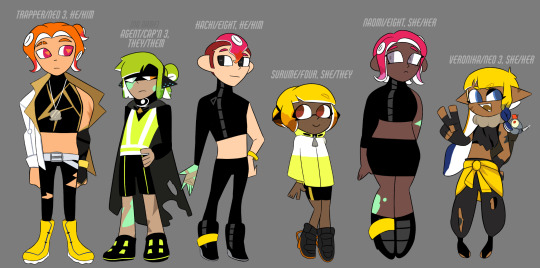

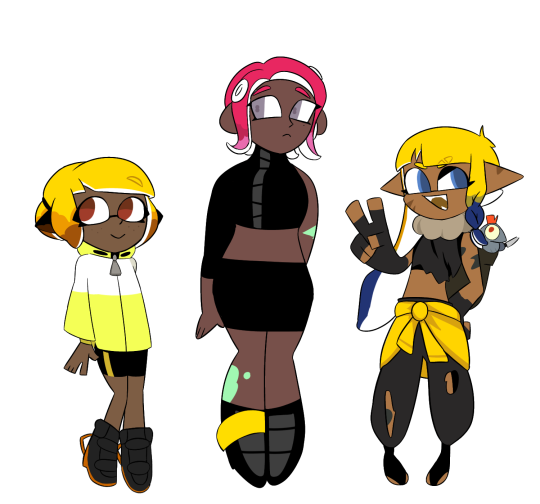
Just for the toon style looks, so here's a hcs for each agents:
(Long words)
Trapper, 22 y/o [Species: Octoling??]
Trapper is not just an octoling, he was used to be one of the Kamabo experiment no.5150. Because he was saved by her adoptive mother, Ellie, he always have to hide his identity in the event of Splatoon 1. He doesn't know much about Dj Octavio and the Octarians clan, but he seems interested until the event of Splatoon 3. He doesn't talk, but he can use sign language (it's a sign that he's mute as always and it's because his voice is very likely to human languages and has no bubble effects in it like the other octolings. He's not an only child he was raised by her own mother, he has a sister, Veronika. He doesn't trust the Kamabo or Commander Tartar. He has a strong relationship with Four, but now he miss her (since they became separated and getting worried about her). And also, he's a gardener.
Veronika, 14(splat 3) - 16(now) y/o [Inkling]
She's a little feral and always care for his older brother. Never been join Grizzco industries because her little salmon buddy is afraid of the boss himself. She's a huge fan of Pearl from the Off the Hook. She interested any type of weapons and a mechanic engineer. Being forced to washed herself, since she's smell like fishes belongs in the sea. She's also a best friend of Murch. If you mess with Trapper, you mess with her (she'll forced you to drop yourself in the sea as an threat or eats gross food).
Agent/Captain 3 [No name], 21 y/o [Inkling]
Has slowly lost their original name and gender. Became tired and depressed because of the Octo expansion event, but still smiles when think about the past what they used to. They like Naomi as a close friend. rarely talks and type of introvert person. Doesn't want to talk about Deepsea Metro (they have PTSD). They can rap since they known as DJ Sango. Get along with the Squid sisters, even they stay as their part of the family. Always support other Agents no matter what and only the mysterious agent among others.
Surume/Four, 23 y/o [Inkling]
A great agent who always very positive and an extrovert person. She always like Trapper, who are very close to her (both always think about each other since they were separated from different city). She was busy due to an extracurricular, and a roommates with Hachi and Naomi. Four really care about Trapper's feeling for her if he's not in a good mood. She loves biology to know about sea creatures and even mammals, including plants. She's shorter than other agents.
Hachi/Eight, 21 y/o [Octoling]
An agent who is only one was escaped from the Deepsea Metro with his sister, Naomi. He doesn't get recover his traumatic experience back there, but always finds a way to avoid it. Kind to anyone, likes other agents. He doesn't know about Trapper, but he interested to meet him. Confidence to find answers. He's afraid of C.Q Cumber. When he's stares at you, it can tell he looks like a little puppy. He and Naomi lives with the Off the Hook as like their parent figure. Always protect his sister.
Naomi/Eight, 19 y/o [Octoling]
She's a bit shy and a fan of the Squid sisters after the effects of the Calamari Inkatation. She likes Cap 3 about their skills and being cool. She's barely talks, but always needs a help from her brother. She kinda loves the beautiful view around the new city or places she wants to travel. She's having a fear of Blender and being lonely without her brother or someone. She likes doing art and doodles on her sketch she bought in the surface. She always sticks with her brother since she doesn't want to get separated. And a friend of Four.
Welp that's all the hcs I have for my agents. Most of them are similar the canon splatoon facts. And here's the base of the body type looks
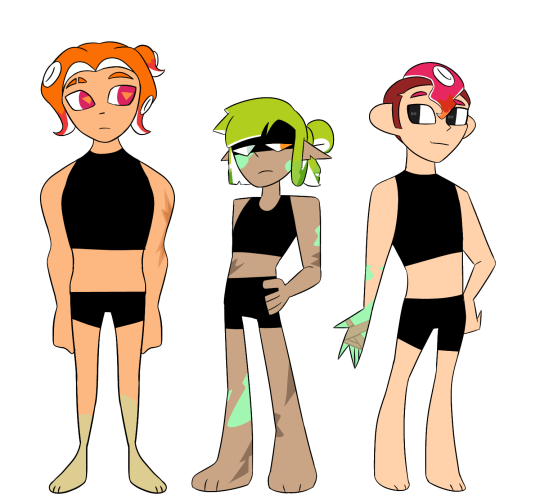
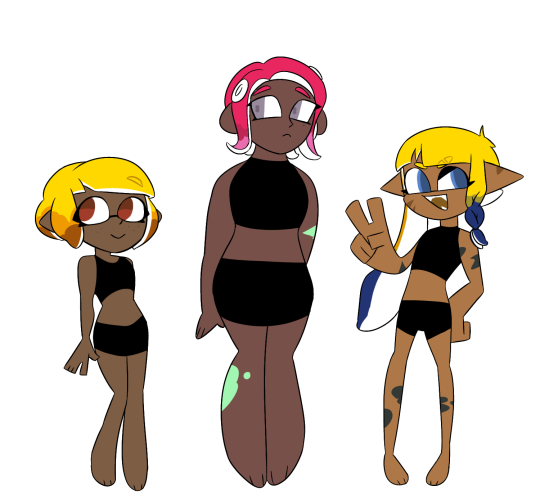
And bonus for Trapper in agent outfit:

#tdh's art#splatoon#splatoon 2#splatoon 3#splatoon agents#agent 3#captain 3#neo agent 3#new agent 3#agent 4#agent 8#trapper#splatoon oc#trapper has different outfit if curious why; because the previous one doesn't suit him or he's big and can't zip it then it got ripped
63 notes
·
View notes
Note
sunnnn, can you please do an ateez san ideal type reading too?
𝙎𝙖𝙣'𝙨 𝙄𝙙𝙚𝙖𝙡 𝙏𝙮𝙥𝙚

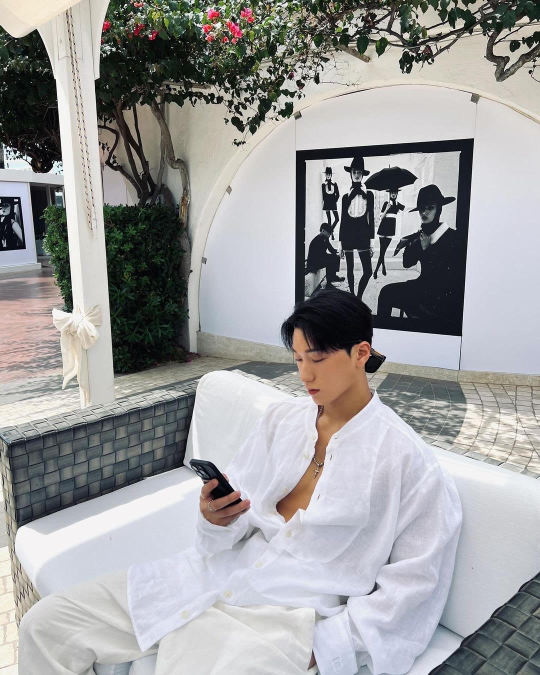

𝐒𝐡𝐮𝐟𝐟𝐥𝐞𝐦𝐚𝐧𝐜𝐲:
“Brain Stew” by Green Day
“Just That Girl” by Drew Seeley
“Born Sinner” by J. Cole (feat. fauntleroy)
𝐂𝐚𝐫𝐝𝐬:
The Sun (Rx), The Magician (Rx), Four of Swords, The Hermit, Five of Wands (Rx), The World (Rx), The Moon, Two of Pentacles, Eight of Cups, Four of Cups
𝐑𝐞𝐚𝐝𝐢𝐧𝐠:
san could be somewhat similar to wooyoung in being attracted to people who may not be the most emotionally stable. he could be attracted to those who may usually be naturally optimistic and sure of themselves but sometimes find themselves questioning the point of being that way. those who are kind even when others don’t treat them the same; those who maintain their sense of self even when they don’t have a reason to if that makes sense.
he could be attracted to those who are able to do some introspection; he could possibly prefer introverts with the hermit being present. he could be drawn to those who “can’t stand up for themselves”; those who tend to be more cooperative with others and avoid conflict even when it’s needed. he seems to be very similar to wooyoung in wanting to “complete” someone or soothe their fears. he wants to be able to help people “realize their worth” so to speak. he’s attracted to people he feel he can “heal”.
he could be more drawn to those who are water dominant. those who are more in tune with their emotions and possibly even more feminine in aesthetic or looks. those who have a strong-strong-soft mix of features (say, their eyes are piercing and their nose looks sculpted but their lips are soft and pouty as an example). those whose eyes and lips are their standout facial features.
overall, i’d say san’s ideal type is different from wooyoung’s in that san likes those who are a little softer. those who can do things by themselves but those who are grateful for help wherever it comes from (while wooyoung is more attracted to those who don’t want the help but give in eventually). san is drawn to those with a focus on their emotions while wooyoung is drawn to those who have a strong mindset or ideas.
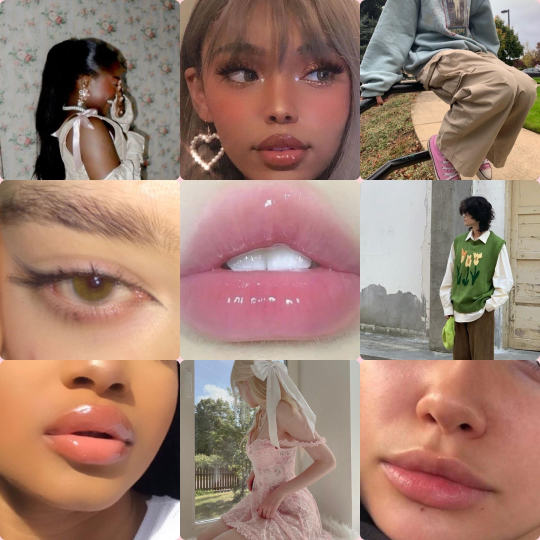
also for the anon that just asked, his ranking for his preference age wise would be same age > younger > older
#kpop tarot#celebrity tarot#ask#anonnies#celebrity readings#kpop readings#tarot#oracle#lunarsights#ateez#ateez tarot#choi san
52 notes
·
View notes
Text
BEOMGYU: “We’re a team, so I want to work together to make it happen”
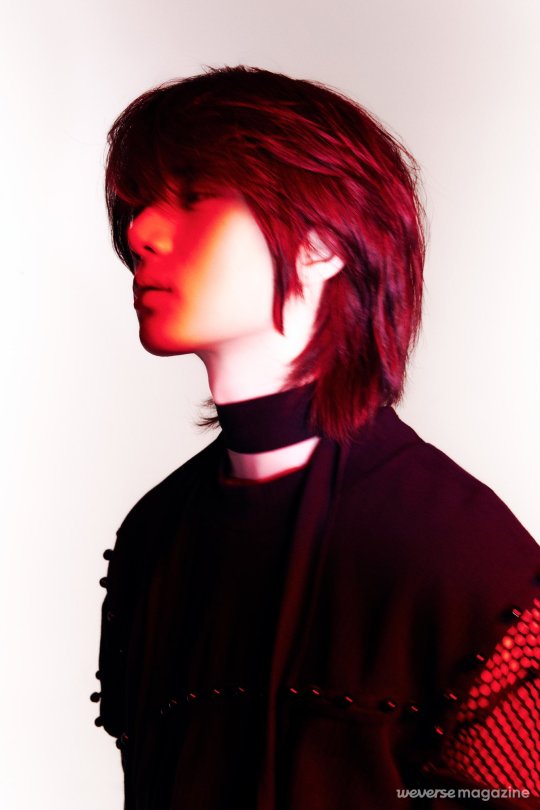
TOMORROW X TOGETHER The Name Chapter: FREEFALL comeback interview
2023.10.27
Eight months earlier, BEOMGYU told us he didn’t want to lose to himself. Now he says he’s found a way to persevere.
You mentioned you were very happy and healthy throughout the second tour.
BEOMGYU: I didn’t get bogged down by the fear of what happened that one time. I was determined to overcome it. I did plenty of preparing physically and mentally in order to avoid a repeat of last time and handled everything well. I envied the other members of the group during the last tour and was sad that I couldn’t fully enjoy the concert experience due to my physical condition. I put all my worries aside this time and just focused on performing and I was a lot happier.
Have you mastered how to handle yourself in the face of extremes and how to overcome them?
BEOMGYU: Even though it was tough, things still worked out in the end, so I thought, Everything’s fine—it’s not like I’m going to die. (laughs) I kept experimenting by trying different things to check if I still felt my best after. I tried not eating before concerts, drinking energy drinks some days, taking arginine on other days. In the end, I found it’s always best to eat and having one multivitamin is enough to give me energy without putting a strain on my body. It’s like I found my own personal winning formula. (laughs)
Have the positive emotions you experienced during the tour carried over to have an effect on your everyday life? You mentioned in a previous interview that you felt like you had attained spiritual enlightenment. (laughs)
BEOMGYU: I mean, I’m happy. (laughs) Not a lot has changed, but while I felt like I was in a sort of state of nirvana back then, now I feel like I’m taking care of what I have to do every single day and accepting things for what they are—just going with the flow. These days I keep thinking, even if I don’t understand something, it’ll all turn out okay in the end if I just go with the flow. At the end of the day, I’ll just go home and get some sleep. All things shall pass. And then I feel fine. There’s no reason to get all worked up about things and let them get to me.
I guess that’s what you meant when you said that—“all things shall pass”—during the tour, which turned out to be like a catchphrase for you.
BEOMGYU: Exactly. But I was trying to make myself believe that before and pushing myself, whereas now it’s how I really feel.
It seems like you’re continuing to live the life of an artist as you overcome those things that you feel you just aren’t naturally compatible with.
BEOMGYU: I was absolutely born for the stage, though. No matter how nervous I get, I always have a phenomenal time once I get on up there. But what I found emotionally draining once we got on tour was that every place in the world has different views and I had to learn to adjust quickly to those. That was a difficult process. Not to mention I became a lot more introverted after we debuted, so I found it really hard communicating with all those people while promoting internationally. The pressure from that kept weighing on me while we were touring. But we did similar promotions recently and I went out of my way this time to go up to people more and reacted to things in over-the-top ways despite my terrible English. (laughs) But it was pretty good. I think I’ve learned some ways to overcome things.
Have you also changed the way you recover and distribute your energy now that you’ve been to so many different environments?
BEOMGYU: That part’s still the same. I get in, drink some barley tea (laughs) and fall asleep watching Netflix. I’m the type to pour 100% of my energy into everything I do. I try to be as energetic as possible whether I’m on a variety show or performing on stage, so my batteries are always going from 100, down to 0, back to 100, to 0, and on and on. (laughs)
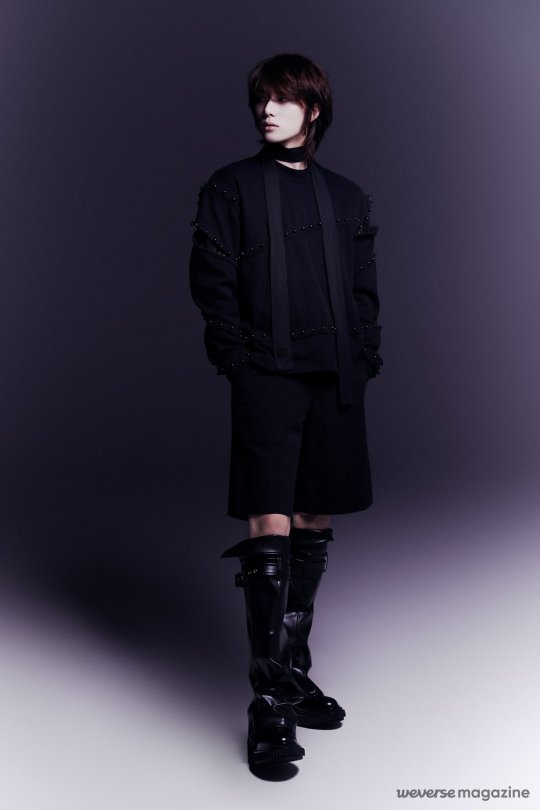
And the stages you performed on keep changing, too. There's something new to grasp and adjust to every time, so you must have to be hyper focused.
BEOMGYU: Interestingly, if you perform 30 times, you’d think it would be easier by the 30th time. But if you keep doing the same thing over and over? Then you actually start to mix things up. I don’t know if it has something to do with complacency, but I make mistakes more frequently as time goes on. So the more you go on, the more you have to really focus on each performance. The idea is to never mess up the parts that have changed or I’ve messed up once before, ever again.
It’s amazing how you took the most impressive moves in “Back for More” and made them that much better by putting your own spin on them.
BEOMGYU: I think I mentioned before that, when I first hear a song and see the choreography demo, I can picture things, like how to convey certain parts, or maybe if it would look cool if I looked away like this. It can be a little hard to explain because it’s all in my head. I thought a lot about the part in the chorus after the second verse where we jump up and whip our hands in particular to figure out how to make it look cooler.
And were you satisfied with what you landed on?
BEOMGYU: Yes! But I always end up liking what I do. (laughs) I’m really proud of it. (laughs)
You said before that you watched your old dance videos to prepare for the tour and that you found a lot of parts that weren’t up to your standards. Do you feel you improved while learning the single “Chasing That Feeling”?
BEOMGYU: I used to be obsessed with putting the maximum amount of energy into my dance moves. Then I got some messages from friends after the year-end awards shows, saying, “You were too intense. You should tone it down a bit.” I thought the best thing for those big performances was to put more and more energy into them, but lately I’m trying to dance in a more balanced and elegant way. The choreography for the new single isn’t that intensive, so I picked it up really quickly, but I know I have to practice how to express myself in a greater variety of ways. I always feel like, if I perform something live once, it’s a lot different from when I’m practicing to get the hang of it. I think it all becomes clear after performing it.
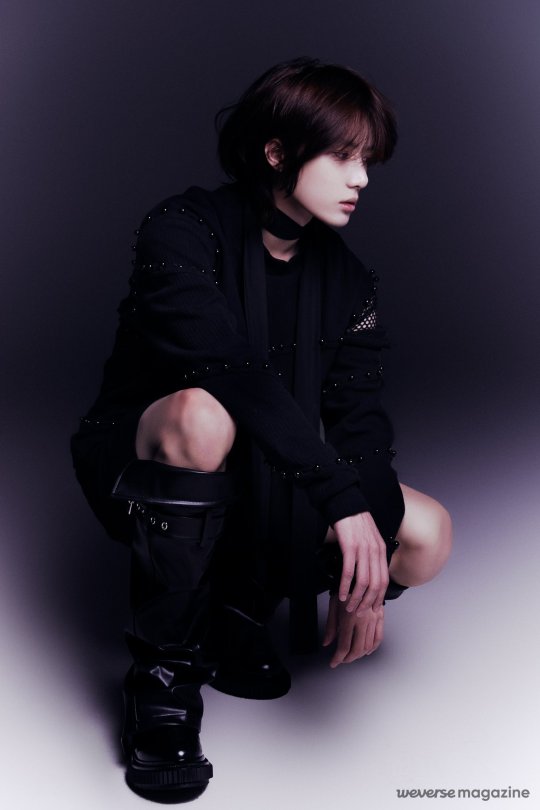
You struggled a bit singing the last album’s single because of the pronunciation. Did you face any similar challenges this time around?
BEOMGYU: There’s a line in the verse—“cheonguk-eul deungjin nan”—and to make that eu sound in the syllable deung, you have to narrow the inside of your mouth. I tried singing it 10 times, and missed the mark 10 times. But then, I once again attained enlightenment. (laughs) Now when I sing it, my voice never cracks. I figured out how to shape my mouth to pronounce it correctly and persevered. I wasn’t originally supposed to be the one to sing that part, but as soon as I heard the song, I said, “I have to be the one to do this! Can I? Please, just trust me. Give me a chance. I’ll make it work.” And I got the part. So I studied the part carefully to make sure I could get it done no matter what.
Songs that align with your vibe, like “Deep Down” and “Skipping Stones,” really bring out what makes your voice so alluring.
BEOMGYU: I’m especially fond of “Skipping Stones,” and most of the other songs off the album are all in genres and styles I like, so it was really fun to record the vocals. Sometimes I’ve done things where I thought, This doesn’t really let me show off my vocals, but I think the new album let me sing in a way that’s closest to my natural voice.
Are there also songs you helped write the lyrics to that you find easier to get into since they’re in your style?
BEOMGYU: The songs I find the easiest to get into are those where the emotions are most realistic and I can be honest about my feelings. For example, thanks to my own personal experiences, I can take on topics like liking someone or dealing with difficult emotions and add my own personal touch to them. But songs that are like The Star Seekers are written to conform perfectly to a theme. Was that a really T thing to say? (laughs) To be honest, I feel like I’ve already said everything I have to say about seeking stars, going through hardship, and growing up on repeat. (laughs) But I really liked writing “Blue Spring” since it’s truly about us.
You also produced that song. How did that go?
BEOMGYU: I pictured people singing along to it right from the outset, so I purposely gave it simple chords when starting out. There’s three or so songs I made while just playing around on guitar at home. We spent hours poring over chords in the studio, too, but I ultimately chose the track I made at home. “Maze in the Mirror” and “Blue Spring” are both about how I felt before and after knowing MOA. As you know, we went through a lot of hardship, and now we’re out there singing for all of them. I remember how hard those chilly blue days were, but I also know how happy I am now, so the song really tugs at my heartstrings. I have to hold back my tears whenever we sing the line, “No one knows about that winter,” in concert.
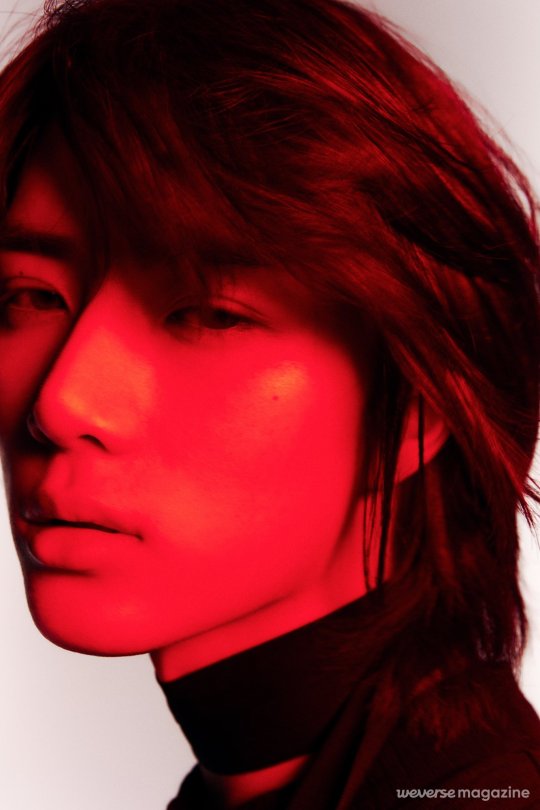
You’ve seen MOA as your best friend for a long time now, but when I watch your most recent Weverse Lives, I get the feeling that you want to have an emotionally closer relationship with them based on how you keep your streams laid-back.
BEOMGYU: I think it’s better to be natural and keep it real when I do Lives by myself than to be TOMORROW X TOGETHER’s very own BEOMGYU. Sometimes I just, you know, put my phone down next to me with music playing like a radio or something, lie down, and start talking. All I want from my relationship with MOA is to have honest, human conversations—not artist-to-fan conversations, but casual, natural conversations.
It's a dead giveaway that you’re looking to have a genuine relationship with them when you let MOA listen in on your phone conversation with your mom in the middle of a Live. (laughs)
BEOMGYU: I want to show them how I really live. (laughs) I can show MOA the kind of chemistry I have with other people. I’m always quick to call my mom when the other members pull a “Tallulah” on me. I don’t like that my mom doesn’t take my side, but I know she’s just having fun. (laughs)
TAEHYUN once said you have a knack where “he can talk and everyone would not find him annoying.” It seems to me like you already know the others will still find you cute no matter what kind of annoying jokes you play.
BEOMGYU: I’m good at walking that tightrope. (laughs) I was born with it. (laughs) I’m always messing around with SOOBIN, too, but if I think he’s being serious, I back off right away. I can usually tell how someone’s feeling just by the look in their eyes, so I intuitively keep my balance while walking that tightrope. (laughs)
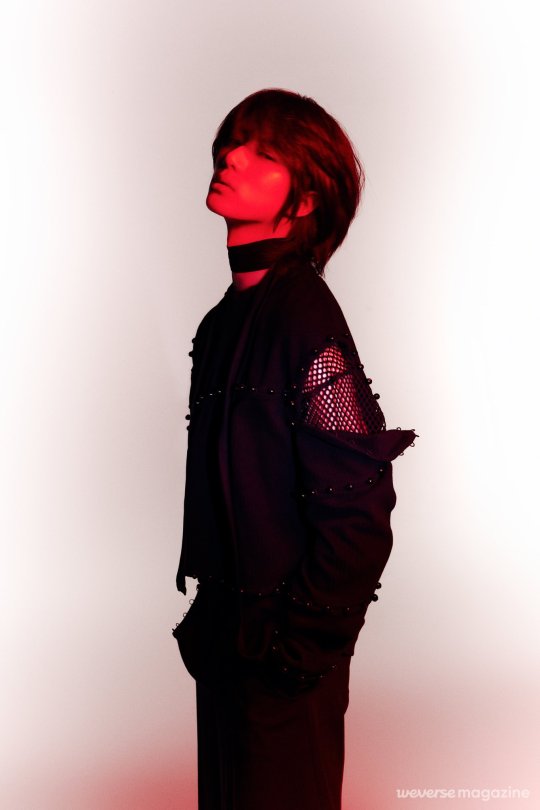
What are you like when you’re with your family? It seems like your dad really means a lot to you, seeing as, when you were asked if you could live as someone else for a day, who would it be, you answered, “my dad.”
BEOMGYU: I’m better behaved when I’m with my family, and I like chatting with my mom and dad. We can talk for hours when we talk about the things they want to know about me, things I want to know about them—that kind of stuff. Like I always say, if I ever become a dad, I want to be just like mine. He’s considerate, and he and my mom are still like a new couple. They’re so cool. I even told that to my dad recently and he said, “Thank you for being my son and for growing up into a wonderful young man.” We still say “I love you” to each other. Our family’s full of love. (laughs)
I remember you said that you kept looking for MOA and their dads watching your concerts together.
BEOMGYU: Most likely those dads were there because their daughters or sons like us and they tagged along. I thought it was really cool that they were right there with them having a good time. I spent a lot of time with my dad when I was younger, too. One time I woke up at three in the morning and went all the way out to Taebaek with him to watch motor racing, and we would play soccer or baseball together before school. It’s experiences like that that let me know how good those memories are going to be for MOA when they look back on them someday.
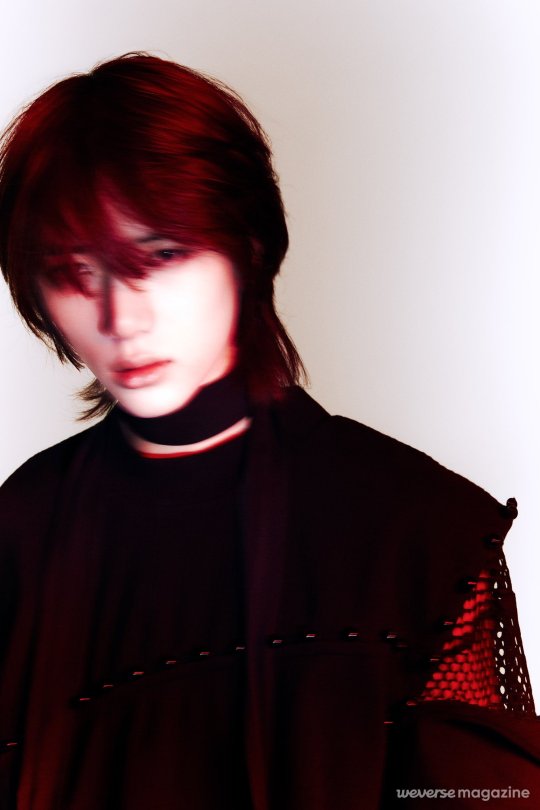
You’ve said the other members of the group are like a second family to you. It was especially touching when you were nervous before going on stage and you said, “When I’m with the other members, I’m not worried.”
BEOMGYU: I was actually three times as nervous for our performance at the MTV Video Music Awards than any other concert. My heart wasn’t going ba-bum, ba-bum—it was going babumbabumbabumbabum. But right before we got on stage, we put our hands all together and yelled, “Fighting!” And then we hugged each other. That really brought me comfort. The other members are the only ones I can lean on whenever I find myself in that kind of unfamiliar, difficult environment. When I see one of them having a hard time, I feel like I should put my own problems aside for a while and work harder for their sake. And I think that’s all possible because we’re a family.
Is that also why you decided to work together to reach the very top, like YEONJUN and TAEHYUN talked about on SUCHWITA?
BEOMGYU: I had a really hard time during and after our first world tour, and I was certain that, unless I’m healthy, there would be no point in making it to the top. I was firm about that. So if I’m being honest, I felt pressure because of YEONJUN and TAEHYUN’s vision. I’m the kind of person who strives for happiness in his everyday life, but they said they feel like making it to the top is what would make them feel happy. What could I do? We’re a team, after all. We work together for the sake of each other’s happiness. I thought it over and said, We’re a team, so I want to work together to make it happen. If that’s what everyone wants, I’ll work hard alongside you. Let’s put in the effort and make it to the top.
That makes me think of how you made a point to say you like movies to have a happy ending no matter what.
BEOMGYU: I don’t like when they’re left open-ended, and I can’t stand sad endings. I get completely absorbed in the plot of movies and all the emotions there when I watch them, so it feels like I am the main character. I root for that character with all I’ve got and hope they’re happy ever after.
And you see the happy ending you wished for in your future, don’t you?
BEOMGYU: It certainly feels like I’m moving towards it. (laughs)
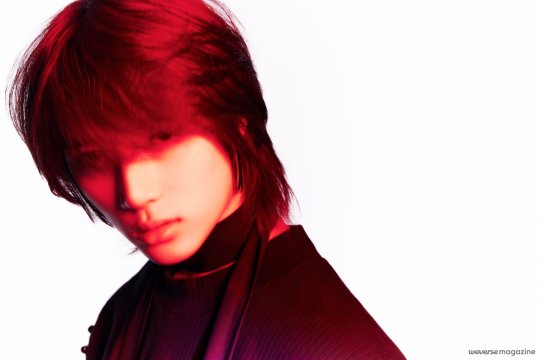
#txt#tomorrow x together#231027#weverse magazine#beomgyu#choi beomgyu#weverse#the name chapter: freefall
62 notes
·
View notes
Text
My Cheatsheet
Information Elements
Irrational elements (because they perceive, not reason):
Se - extroverted sensing: Force (F)
Accumulation of external involvements
Force: strength or energy as an attribute of physical action or movement. In physics, understood as an influence tending to change the motion of a body or produce motion or stress in a stationary body.
Si - introverted sensing: Senses (S)
Integration of external involvements
Senses: faculties by which the body perceives external stimuli.
Ne - extroverted intuition: Ideas (I)
Accumulation of internal abstractions
Ideas: thoughts as to possible courses of action or outcomes.
Ni - introverted intuition: Telos (T)
Integration of internal abstractions
Telos: ancient Greek term for an end, fulfillment, completion, aim or goal. Ethymologic source for the word 'teleology', the explanation of phenomena in terms of the purpose they serve rather than of cause by which they arise.
Rational elements (because they reason, not perceive):
Te - extroverted thinking: Pragmatism (P)
Accumulation of external abstractions
Pragmatism: an approach that evaluates theories or beliefs in terms of the success of their practical application.
Ti - introverted thinking: Laws (L)
Integration of external abstractions
Laws: the system of rules which a particular country or community recognizes as regulating the actions of its members and which it may enforce by the imposition of penalties.
Fe - extroverted feeling: Emotions (E)
Accumulation of internal involvements
Emotions: strong feelings deriving from one's circumstances, mood, or relationships with others.
Fi - introverted feeling: Relations (R)
Integration of internal involvements
Relations: the ways in which two or more people or things are connected; a thing's effect on or relevance to another. Also the way in which two or more people or groups feel about and behave towards each other.
Each of the eight information elements fit into and fill one of the eight cognitive functions that make up a person's personality type. The different assortments result in the 16 different types.
Cognitive Functions

1. Leading - most capable (4D), valued, public, and stubborn. Automatic, confident, and comfortable first approach that sets and programs the base objectives of the personality. Also called Base, Dominant, or sometimes Program function
2. Creative - highly capable (3D), valued, public, and flexible. Complements the leading function's set program and takes it into actions, brings it into the world. Also called Auxiliary function.
3. Role - less capable (2D), unvalued, public, and flexible. Conscious adaptation to respond to outside expectations. Sometimes called Reluctant function.
4. Vulnerable - least capable (1D), unvalued, public, and stubborn. Source of insecurity, least resistance to external pressure, and inflexible lack of comprehension of its given information element. Sometimes called Exposed function or Path/Point of Least Resistance (PoLR).
5. Suggestive - least capable (1D), valued, private, and flexible. Search for intimate reassurance and/or influence of others, appreciation and enthralling of the presence of the element in them, feels calmed by it. Also called Accepting or Seeking function.
6. Mobilizing - less capable (2D), valued, private, and stubborn. Highly personal need for being independently capable in this element, but is overconfident. Consistently clumsy in its effectiveness or overcompensating in its expression. Its usage energizes the person. Also called Activating function or Hidden Agenda.
7. Observing - highly capable (3D), unvalued, private, and stubborn. Non-participation in the usage of its given element outside of scrutizing from the sidelines and sometimes consistently critizicing or questioning its validity. Traditionally called Ignoring function.
8. Demonstrative - most capable (4D), unvalued, private, and flexible. Unconscious and persistent leading utilization of the element, even when it would rather not be used. Willingly let go of when asked of by overwhelmed people due to its unvalued and flexible nature, yet it still assists in the achieving of the type's goals.
Each of the eight functions fit into one of four Blocks within the model, creating Rings of information metabolism:
Blocks

Public and conscious blockings: the Mental Ring
Ego Block: valued and "strong" functions
Super-Ego Block: unvalued and "weak" functions
Private and unconscious blockings: the Vital Ring
Super-Id Block: valued but "weak" functions
Id Block: unvalued but "strong" functions
Inert functions: stubborn, intransigent, bold, assertive, and energetic functions
Contact functions: flexible, collaborative, subtle, and reluctant functions
The "strength" or "weakness" of a given function is explained through the qualitative parameters with which they are able to process information to elaborate conclusions and internalize lessons. Each set of which are called Dimensionality of a function:
Dimensionality
Each function processes information and grows by taking into account the parameters of:
1-Dimensional (1D): experience. Referred to as least capable, "weakest".
2-Dimensional (2D): norms and experience. Referred to as less capable, "weak".
3-Dimensional (3D): situational, norms, and experience. Referred to as highly capable, "strong".
4-Dimensional (4D): time, situational, norms, and experience. Referred to as most capable, "strongest.
Commonalities can be discerned between types depending on strengths and values, called small groups or quaternions:
Small Groups
Quadras: according to valued elements
Alpha: value Ti, Fe, Si, Ne - Acceptance and Togetherness
Beta: value Ti, Fe, Se, Ni - Calling and Order
Gamma: value Te, Fi, Se, Ni - Aptitude and Independence
Delta: value Te, Fi, Si, Ne - Growth and Hope
Clubs: according to dominant primary information
Researchers: intuitive and logical (NT)
Socials: sensing and ethical (SF)
Pragmatists: sensing and logical (ST)
Humanitarians: intuitive and ethical (NF)
Temperaments: according to primary extroversion (E or I) and rationality (P or J)
Flexible-maneuvering: extroverted and perceiving (EP)
Linear-assertive: extroverted and rational (EJ)
Receptive-adaptive: introverted and perceiving (IP)
Balanced-stable: introverted and rational (IJ)
Communication styles: according to primary extroversion (E or I) and rational preferrence (F or T)
Bussinesslike: extroverted and logical (ET)
Passionate: extroverted and ethical (EF)
Cold-blooded: introverted and logical (IT)
Sincere/Soulful: introverted and ethical (IF)
I will make separate in-depth entries for each of the points in every section, the 16 Socionics types and more.
16 notes
·
View notes
Text
About manifesting that SP {about feeling insecure!}
I think there's stages to manifesting your SP, not like methods but states of mind that some of us go thru. I've seen it with other people and I've experienced it myself and I thought i'd share my two cents on the topic.
The first stage is desire. Realizing we want them. Realizing we like them, realizing those feelings. It's a simple stage. We see it, We like it. We want it.
The next stage is when we manifest it. However you do this is up to you. You use affirmations, go into the void, use sigils, etc. But you know what you want and you know how to get it and you put in the effort to get it. Putting in the effort is a coin toss for whether it's easy or hard for you, depending on where you personally are in your manifestion journey and if you've found what works for you or not.
But what about the time between when you start manifesting and the time when it materializes in your 3d?
For me, I found myself looking thru their social media and as I went further back in their timeline I found a video where my SP was awkwardly flirting with a girl who's- from what I could gather in such a short time- drastically different than me. Immediately thoughts of doubt and insecurities flooded my mind, despite my past persistence in manifesting it and the movement I've been seeing in my 3d.
{For context, the SP i'm manifesting is a famous twitch streamer, and I'm manifesting a friendship to lovers relationship that'll start in six to eight months from now- July. So it's not going to be "instant" but I believe it's already manifested.}
Due to my past relationships, of having a crush on a guy who's best friend was the complete opposite of me and he ended up dating her instead {now they're married.} Liking someone and seeing that their type is so polar opposite from who i am, is an insecurity trigger for me. So i started to feel that insecurity creep up and at first I just kept persisting in the fact that "it's already done" and tried to get into a meditative state of separating myself from the insecure thoughts, but after a few more minutes i decided I just needed to feel the emotions, the insecurity and work thru it and then let it go.
So this post is already long but I want to share an important fact for anyone else who's in the stage of feeling insecure or having doubts about manifesting your SP, or if you've already thought about giving up, this next part is for you!
I don't care who your SP is. A famous actor or the person you sit next to in math class.
I don't care if they have a "type" and their "type" is someone who exudes introverted black cat energy and you are the epitome of sunshine and rainbows.
I don't care if you have 5,000 miles between you two or 5 houses.
I don't care if they've said they'd never date someone like you.
None of that matters. I don't care and you shouldn't either and here's why :
You create reality.
Read that again. You. Create. Reality.
You're capable of turning the moon blue. You're capable of making it snow in the desert. And you're capable of manifesting your SP thinking of you as perfection.
Yeah, maybe in one reality my SP thinks i'm annoying and they wouldn't ever imagine dating me. But guess what? That's not the only reality there is. And there's no reason why that's the reality I have to be aware of. Because there's another reality, where my SP has the biggest crush on me from the second he notices me. There's a reality where my SP can't imagine not living without me in his life after we meet. There's a reality where I spend the rest of my life with my SP living happily ever after. And that's the reality i'm going to be aware of.
And that's the reality you can be aware of- you, with your SP adoring you.
So feel the insecurity, feel the doubts but then remember in the reality of your imagination, that scenario of when your SP asks you to be their partner, or if you're the one asking them and they smile and say "I was wondering when you'd ask me." Remember that, remember that that's already happened.
Your imagination is reality.
Imagination is memories you haven't experienced yet.
I know this is super long, I had the intention of making it short but here we are.
So if you leave this post with one thing to take away, take this :
You're God, why wouldn't they fall for you?
#loa blog#loablr#manifesting#reality shifting#neville goddard#law of assumption#manifesting desires#sp manifestation#act as if#affirm and persist#affirmations#feeling insecure#feeling doubt#need motivation#inspiration
74 notes
·
View notes
Text
Crash Course on MBTI: The Eight Functions (Part 1)
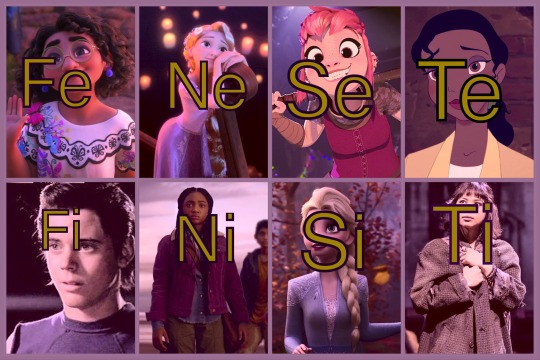
I was thinking of things to do on this blog, besides just character typings, and I thought about how to explain the basics of MBTI to people who may know nothing about MBTI, or people who are only aware of 16 personalities. So I will be doing a three part series on the very very basics of MBTI.
Understanding each cognitive function by itself is the first step of understanding MBTI as a whole, so that’s what this post will focus on. Part two will focus on stacking, and part three will focus on the types as a whole.
What is a cognitive function?
Cognitive functions are the bones of each Myer-Briggs type, the way each type operates in the world around them. Cognitive functions can be divided into two groups- judging and perceiving. The functions are as followed:
Judging (Thinking & Feeling)
Fi (Introverted Feeling)
Fe (Extroverted Feeling)
Ti (Introverted Thinking)
Te (Extroverted Thinking)
Perceiving (Sensing & Intuition)
Ni (Introverted Intuition)
Ne (Extroverted Intuition)
Si (Introverted Sensing)
Se (Extroverted Sensing)
As we explore in part two, everyone has two of each, and each function is paired with their opposite. For example, you will always see an Fi paired with Te, you will never see Fi paired with Ti. And both pairs of cognitive functions will make your MBTI type.
If you’re confused by how this works, we will definitely learn more in part two.
Introverted Feeling (Fi) vs. Extroverted Feeling (Fe)
The main difference between Fi & Fe, is how they project their emotions. Given the names, Fi users feelings come from within themselves, whereas Fe users feelings come from within. So what does this mean?
The most simple explanation, is that Fi users value personal values, while Fe users value community values. This however, does not mean that Fi users are selfish, or that Fe users don’t have personal values, however.
An example of a healthy Fi user, is Lucy Gray Baird, from a Ballad of Songbirds and Snakes. She cares about other people, she seems the good in other people, but she shows her love by having a strong moral code. She doesn’t lie to others, because it’s not right. She values trust, which she upholds on her end.
However, a good example of an unhealthy Fi user, is Penelope Featherington from Bridgerton. She is raised in a very unhealthy household in general, and feels like her feelings are unvalued, so therefore, she expresses her emotions through a gossip column. She often sits on her emotions for so long, without action, to the point where she ends up making horrible choices.

A good example of a healthy Fe user is Moana. Her values are community based, and she is not easily swayed by her own interests. She had her own goals- everyone does- but she consistently pushes them aside for the sake of her village. Eventually, however, she is able to find a balance, a way to reach her goals and to make herself and others happy, instead of simply sacrificing her own happiness for others.
An example of an unhealthy Fe user is Gretchen Wieners, who is obsessed with being liked and social status. She is mean to the other girls to maintain her role as Regina’s right hand, and she is constantly giving up parts of herself for the sake of Regina. Her hooped earrings, for example.

Ti (Introverted Thinking) vs. Te (Extroverted Thinking)
The simplest way I’ve heard Te and Ti described is Te is objective logic, while Ti is subjective logic. What this means is that Te users trust systems that give them clear, observable and objective results, where as Ti users explore logic for the sake of knowledge. Ti users may come up with their own theories and systems of logic to understand the world around them, as well as arguing against commonly accepted logic. Te users feel most comfortable using data and systems that are presented to them and seem to work, and tend not to go against what they know.
A good example of a healthy Ti user is Kristoff from Frozen. He abides by his own systems of logic, and uses this to challenge Anna with her own flawed logical system, due to her isolation. He also has a good handle on his Fe, despite being so low in his stack, which means his logic is somewhat grounded in reality.
An example of a character who is an unhealthy Ti user, is Leo Valdez in the Heroes of Olympus series. Leo, like Kristoff has his Fe very low on his stack, and tends to be so caught up in his own Ti, that he ignores the feelings of others, or ignores his need for social interaction altogether, because it’s harder for him.

A good example of someone with healthy Te is Tiana, from the Princess and the Frog. Though she gets healthier through the course of the movie, her want for results and her need to achieve her goals never gets in the way of her being a nice person. She doesn’t step on people on her way to achieving her goals, she just wants to achieve them on her own terms.
An example of someone with unhealthy Te is Abuela Alma from Encanto. She is controlling over her family, even when she thinks it’s what’s best for them. She doesn’t address her own feelings, which causes her to be rather harsh when it comes to how she addresses the family. She wants results, but she doesn’t stop to think about the real reason the Encanto and the gifts are so important to her anyways.

Ni (Introverted Intuition) vs. Ne (Extroverted Intuition)
Intuitive functions, in my opinion are very hardest ones to explain, especially to those who have no idea what I’m talking about, so I’ll do my best. Ne is divergent / scattered ideation, while Ni is linear ideation. Both focus on your inner world, and concepts a lot of times involving the future, but they are different in doing so.
Ni has a singular focus, a way to get from point A to point B. A specific way they see certain events conspiring, and rarely stray away from said idea, until it is either proven false, or no longer relevant to them.
Ne users bounce from idea to idea very easily, and lose interest in ideas very quickly. They usually keep their options open, and to them they see many different ways a situation could go.
When thinking about the future, an Ne user may go, “This may happen in the future” or “This is a possible scenario.” Ni users may go, “This will happen in the future,” or “This is the right scenario.”
A good example of a healthy Ni user is Annabeth Chase from Percy Jackson. While she can be quite arrogant at times, she also has the ability to narrow in on one thing and move on when information is no longer relevant. She is able to notice what’s going on in the world around her, and somewhat leans into her Se to work with her Ni.
An example of an unhealthy Ni user is Orpheus from Hadestown. Orpheus is oftentimes way too hyper fixated on his own goals and his own ideas, that he ignores his Se altogether. He doesn’t notice Eurydice leave, because he is so focused on finishing his song, because that’s the only idea he has to bring summer back. He is also so hyperfixated on the idea that Hades is betraying them, that he looks back.
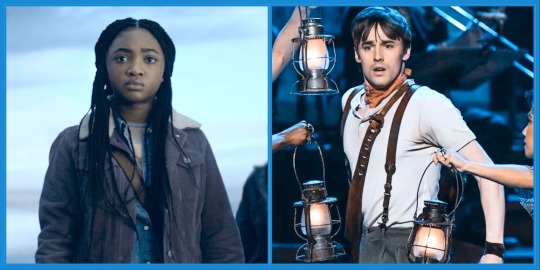
A good example of a healthy Ne user, is Hiro Hamada from Big Hero 6. Hiro has a plethora of ideas, and he doesn’t necessarily commit to one, but his ideas are somewhat grounded in reality. Though some of his ideas seem far fetched to other people, he also uses his experience in robotics to justify it.
An example of an unhealthful Ne user is Luna Lovegood. Ne isn’t her dominant trait, but it is high in her stack, and alot of times, her ideas are not grounded in reality at all. She is so obsessed with multiple views of the world around her, that she doesn’t really stop to think critically about the information she’s spewing.

Se (Extroverted Sensing) vs. Si (Introverted Sensing)
Se and Si both rely on the outside world, but Se observes and reacts as it happens, Si focused on information we already know about the outside world. Most people describe it mainly as observation vs. experience.
Si users, especially high Si users, may rely on routines, and traditions to guide their decisions. Oftentimes, they may be more comfortable sticking to a routine and experience than they do reacting to new information. In some cases Si users may come off as obsessed with past events, and lean very heavily on these past events to make decisions.
Se users react to information as it is given to them. They focus on the present, and may be intrigued by things such as aesthetic, and the world around them. They may be easily stimulated by physical experiences, such as exercise or thrill rides.
An good example of a healthy Si user is Cosette from Les Miserables. Though she has a sad childhood, and she does use her experiences to define the present, she also has a strong relationship with her Ne. Her experiences are very important to her, so are her personal traditions with Marius, but she rarely lets herself be defined by her past solely, and is able to have a dose of optimism about new experiences
An unhealthy Si user is Elsa from Frozen, specifically in the first movie. Throughout the movie, we not only see Elsa be defined by her past, but she gets stuck in a routine, and she is really unable to push aside this routine out of fear. She is defined by her past, and struggles with breaking out of her cycle. She believes pretty much everything she has been told her entire life, and struggles to break her specific routine, and instead, finds a new routine in the castle she built.

An example of a healthy Se user is Jasmine from Aladdin. Jasmine wants freedom and loves to explore the world around her, and while she makes in-the-moment decisions, these decisions oftentimes gets her out of trouble. She is also able to enjoy the world around her without being incredibly impulsive.
However, an example of an unhealthy Se user, would be Pepa Madrigal. Though not her fault, due to circumstances, she is constantly on fight or flight mode with her environment. She reacts to her environment in a negative way by suppressing her emotions through “clear skies” and is simply unable to react to her environment in a healthy way.

How to Apply this to Yourself & Other Characters
Learning and understanding your type takes practice. In the next two parts, I will explain how to determine your type based on these functions. Keep in mind this is a very watered down version of each function, and it takes more than reading a singular post to become aware of these functions.
This being said, it can be really hard to type yourself, because as humans, we are complex. Just because we use Fe doesn’t mean we don’t have any traits of Fi. Shadow functions, in my opinion are a bit complex to a beginner, but it does take a while to understand yourself enough to find the right type.
For the longest time, I though I was an INFP, because parts of myself that I thought were Fi were actually Ti. Also, due to stereotypes (which will be part 3), I was struggling to understand how I could be emotional and a thinker (I was like, 16 at the time), but everyone shows emotions.
So take your time to understand the functions, and eventually you’ll be able to understand yourself and your type a lot better.
26 notes
·
View notes
Note
hey, can u pls do mbti + zodiac signs of the 100? clarke griffin, octavia blake, bellamy blake, jasper jordan, john murphy, raven reyes, lexa kom trikru, madi griffin, josephine lightbourne.
Hi there, Dinand! I really hope you like this a lot!
Clarke Griffin's MBTI Type, Big Three, Enneagram Type and Moral Alignment

MBTI Type: INFJ [The Advocate]
Introverted INFJs exhaust quickly around people and recharge by spending time by themselves.
They tend to overlook small details and instead focus on the entire perspective. They love to see how everything connects together.
Advocates prioritize their emotions. They tend to base decisions on what they feel is right rather than what might be logically sound, making them very empathetic.
They are also very structured and organized. INFJs like to plan ahead and follow processes and schedules.
Big Three: Scorpio Sun, Virgo Moon and Capricorn Rising
Scorpio Sun: Ruled by Mars and Pluto, the Scorpio Sun is known to be intense, mysterious, and ever-evolving.
Virgo Moon: Virgo Moons use their calm nature to gain deep clarity on matters, filtering questions through their kind, but reasonable, lens.
Capricorn Rising: Capricorn ascendants are known for their efforts and diligence when it comes to attaining success and prosperity.
Enneagram Type: 1w2 [The Activist]
Basic Fear: People who are type one with a two wing generally have a basic fear of being immoral and making impure choices. They avoid this by making a conscious effort to make ethical choices.
Basic Desire: They also have a natural desire to be upstanding and humane. They try to fight for the rights of those less fortunate and love being hands-on in making a difference by volunteering in their community.
Activists tend to respond to negativity by redirecting their emotions in order to gain a sense of control. In type ones with two wings, this may lead to sudden outbursts or breaking points, as they work through their emotions more externally.
Moral Alignment: True Neutral [The Balanced]
These characters believe in balance and avoid taking sides. They don’t take moral or ethical stances, but assess situations pragmatically.
Octavia Blake's MBTI Type, Big Three, Enneagram Type and Moral Alignment

MBTI Type: ESFP [The Entertainer]
ESFPs are very outgoing and lively people. They thrive in groups and prefer not to spend too much time alone.
They are very observant, focusing closely on the details rather than the grand scheme. They think in terms of the present.
Entertainers tend to prioritize emotion when making decisions, concerning themselves more with how their decisions will affect others. They are empathetic and diplomatic.
They rely more on opportunity than rigid scheduling. They are spontaneous and playful people, with a passion for finding new adventures.
Big Three: Aquarius Sun, Aries Moon and Scorpio Rising
Aquarius Sun: Aquarius is ruled by Saturn and Uranus, which makes them seek out unique ways to problem-solve and to approach life. They're known to be intellectual and innovative.
Aries Moon: Lunar Aries are known to be emotionally responsive and impulsive at times, as they lead with fiery passions over than logic or reason.
Scorpio Rising: Prone to turning heads, Scorpio ascendents ooze with magnetism and dynamism. They're not known to back away from a challenge.
Enneagram Type: 8w7 [The Nonconformist]
Basic Fear: Eight with a seven wing fear being controlled by others. They dislike authority and prefer to work alone.
Basic Desire: Their basic desire is to remain in control of their own lives. They also want other people to be free, and are often advocates for those less able.
Nonconformists defend themselves by denying vulnerability. They don’t want to appear weak and therefore avoid situations that may leave them exposed or defenseless.
Moral Alignment: Chaotic Neutral [The Free Spirit]
Free from societal constraints, these characters prioritize their own freedom and make choices based on their whims.
Bellamy Blake's MBTI Type, Big Three, Enneagram Type and Moral Alignment
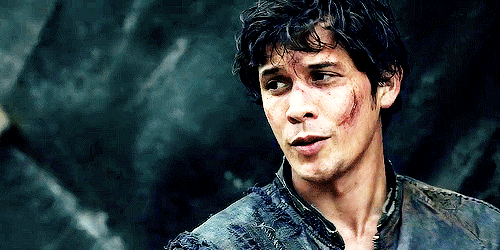
MBTI Type: ESTP [The Entrepreneur]
ESTP types like being around large groups of people, whether they know them or not. They prefer being out in action to being at home by themselves.
They are very observant and detail-oriented people. They are practical and realistic, focusing on the here-and-now.
Entrepreneurs make decisions based in logic. They care more about following the truth than making other people happy.
They avoid schedules, preferring to make plans as they go. They are less aware of time and enjoy being adaptable.
Big Three: Aries Sun, Cancer Moon and Virgo Rising
Aries Sun: The first sign of the zodiac, Aries is ruled by action planet Mars. When placed as the sun sign, the ram can motivate themselves to face on fears and blow past hesitation.
Cancer Moon: The emotions of Cancer Moons have no limits, restraints, or depths. This is a cosmic placement that often leads to sweetness, kindness, emotional awareness and responsibility.
Virgo Rising: Virgo ascendants are the fact-finders and checkers of the zodiac. They are fair-minded and slow to anger.
Enneagram Type: 8w7 [The Nonconformist]
Basic Fear: Eight with a seven wing fear being controlled by others. They dislike authority and prefer to work alone.
Basic Desire: Their basic desire is to remain in control of their own lives. They also want other people to be free, and are often advocates for those less able.
Nonconformists defend themselves by denying vulnerability. They don’t want to appear weak and therefore avoid situations that may leave them exposed or defenseless.
Moral Alignment: Chaotic Good [The Rebel]
These characters value freedom and kindness, often challenging laws and order to achieve just outcomes.
Jasper Jordan's MBTI Type, Big Three, Enneagram Type and Moral Alignment

MBTI Type: ENFP [The Campaigner]
ENFP types are generally very outgoing and lively, preferring to go out rather than stay in. They love conversing with other people and generally process their thoughts externally.
They are great problem solvers and enjoy figuring out how everything is connected. They tend to focus more on the future than the present.
Campaigners like to keep the peace and avoid conflict. They care more about subjective principles than logic and fact.
They are flexible and spontaneous, preferring to keep their options open. They dislike routines, schedules, and strict rules.
Big Three: Sagittarius Sun, Pisces Moon and Leo Rising
Sagittarius Sun: Sagittarius is governed by the expansive planet Jupiter, and is known for a free-spirited, globe-trotting, philosophical mindset — and wild streak.
Pisces Moon: Pisces Moons are hyper-attuned to the needs and emotions of others. They're likely to predict what's on your mind before you even say it.
Leo Rising: Leo ascendants bask in the glow of sunlight, radiating positivity and charm. Performers through and through, those with this friendly, radiant, and outgoing placement exude confidence and strength.
Enneagram Type: 7w6 [The Pathfinder]
Basic Fear: Sevens with a six wing have a deeply-rooted fear of missing out. They want to be trustworthy and honor commitments, but they also want to leave room to allow for last-minute opportunities.
Basic Desire: Their basic desire is to feel fulfilled and happy. They express this by searching for joy in every small thing that comes their way.
Pathfinders defend themselves by rationalizing away negative feelings. They unconsciously convince themselves that they are happy, even when they are not.
Moral Alignment: Chaotic Good [The Rebel]
These characters value freedom and kindness, often challenging laws and order to achieve just outcomes.
John Murphy's MBTI Type, Big Three, Enneagram Type and Moral Alignment

MBTI Type: ISTP [The Virtuoso]
Virtuosos are generally more reserved and prefer being alone. They are self-sufficient and independent thinkers.
They are very observant and focus on the details of a situation, trusting facts and making decisions based on the here-and-now.
ISTP types favor logic and reason over emotional influences. They base their decisions on what makes sense.
They are also spontaneous and prefer keeping their options open. Virtuosos are often more adaptable and less aware of time.
Big Three: Capricorn Sun, Scorpio Moon and Libra Rising
Capricorn Sun: Capricorn is ruled by authoritative Saturn, which is why they tend to work hard toward advancing themselves in earthly matters.
Scorpio Moon: Scorpio Moons are known for their brooding nature that exudes passion. Once you win them over, they are loyal and unconditional in matters of love.
Libra Rising: Finding balance in life is essential for Libra risings, who prefer things to be even-keeled and civil.
Enneagram Type: 6w7 [The Confidant]
Basic Fear: Six wing sevens’ fear losing their support system. This may be expressed through self-deprecating humor, in which they seek affirmation and assurance from other people.
Basic Desire: Their basic desire is to feel safe and supported. They show this by being loving and supportive to others. They honor their commitments and are very loyal to their friends.
Like other sixes, Confidants defend themselves by projecting their feelings, which may lead them to misunderstanding themselves and their relationships.
Moral Alignment: Chaotic Neutral [The Free Spirit]
Free from societal constraints, these characters prioritize their own freedom and make choices based on their whims.
Raven Reyes' MBTI Type, Big Three, Enneagram Type and Moral Alignment

MBTI Type: ISTP [The Virtuoso]
Virtuosos are generally more reserved and prefer being alone. They are self-sufficient and independent thinkers.
They are very observant and focus on the details of a situation, trusting facts and making decisions based on the here-and-now.
ISTP types favor logic and reason over emotional influences. They base their decisions on what makes sense.
They are also spontaneous and prefer keeping their options open. Virtuosos are often more adaptable and less aware of time.
Big Three: Virgo Sun, Aries Moon and Taurus Rising
Virgo Sun: Governed by communication planet Mercury, Virgos are the thinkers of the zodiac. Virgos process information with diligence and use facts to solve problems.
Aries Moon: Lunar Aries are known to be emotionally responsive and impulsive at times, as they lead with fiery passions over than logic or reason.
Taurus Rising: Those with Taurus risings exude grace and sophistication, and handle business with a sweet disposition.
Enneagram Type: 5w6 [The Troubleshooter]
Basic Fear: Five wing sixes fear being useless or incapable. They seek to improve the world around them in order to feel worthy.
Basic Desire: Their basic desire is to be competent and useful. They usually show this by picking up new skills and pieces of knowledge that can be of benefit.
Troubleshooters may withdraw from others to cope with stressful situations, which can tend to make them feel lonely.
Moral Alignment: Neutral Good [The Benevolent]
These characters seek to do good, but are flexible in how they achieve it, valuing both order and freedom.
Lexa Kom Trikru's MBTI Type, Big Three, Enneagram Type and Moral Alignment

MBTI Type: INTJ [The Architect]
INTJs like to have time alone to recharge and think introspectively.
They tend to listen to their strong intuition and love to see how everything connects together. They are focused on the bigger picture and may overlook small details.
Architects are very logical and rational. They base decisions on what makes sense and might have a harder time connecting emotionally.
They are organized and prefer following a plan. They love to set and achieve goals.
Big Three: Capricorn Sun, Aries Moon and Scorpio Rising
Capricorn Sun: Capricorn is ruled by authoritative Saturn, which is why they tend to work hard toward advancing themselves in earthly matters.
Aries Moon: Lunar Aries are known to be emotionally responsive and impulsive at times, as they lead with fiery passions over than logic or reason.
Scorpio Rising: Prone to turning heads, Scorpio ascendents ooze with magnetism and dynamism. They're not known to back away from a challenge.
Enneagram Type: 8w9 [The Diplomat]
Basic Fear: Eights with a nine wing fear being hurt by others. They avoid situations in which they have less control, generally preferring to be in positions of leadership.
Basic Desire: Their basic desire is to guard themselves against threats and control their own destiny. They may express this by asserting independence at a young age.
Diplomats defend themselves by building emotional walls and denying vulnerability. They seek to appear strong, subconsciously believing that being too emotional will make them seem weak.
Moral Alignment: Lawful Neutral [The Judge]
These characters are all about order and organization. They strictly follow laws, regardless of whatever it leads to good or evil outcomes.
Madi Griffin's MBTI Type, Big Three, Enneagram Type and Moral Alignment

MBTI Type: ISFP [The Adventurer]
ISFP types need plenty of personal space. Though they enjoy building connections with people, they need alone time to think and recharge.
They are very observant, especially focusing on the details more than the overall view. They live in the present and tend to base decisions on what they can see right now.
Adventurers also prioritize emotion when making decisions. They prefer to follow what feels right.
They don’t like schedules, but instead prefer to keep their options open. They are adaptable, spontaneous, and like to challenge the need for strict rules.
Big Three: Leo Sun, Libra Moon and Sagittarius Rising
Leo Sun: The Sun rules the sign Leo, which is why Leo Suns all about ego, will, and character. They’re known to be creative, playful, and bold.
Libra Moon: Moon in Libra is makes for a relationship-oriented individual. They may base their decisions upon how they are viewed by others.
Sagittarius Rising: Sagittarius risings are jovial, optimistic, and full of energy. They sparkle with confidence, and you can't help but sparkle back when you're around them.
Enneagram Type: 6w7 [The Confidant]
Basic Fear: Six wing sevens’ fear losing their support system. This may be expressed through self-deprecating humor, in which they seek affirmation and assurance from other people.
Basic Desire: Their basic desire is to feel safe and supported. They show this by being loving and supportive to others. They honor their commitments and are very loyal to their friends.
Like other sixes, Confidants defend themselves by projecting their feelings, which may lead them to misunderstanding themselves and their relationships.
Moral Alignment: Neutral Good [The Benevolent]
These characters seek to do good, but are flexible in how they achieve it, valuing both order and freedom.
Josephine Lightbourne's MBTI Type, Big Three, Enneagram Type and Moral Alignment

MBTI Type: ENTJ [The Commander]
As ENTJs, Commanders are talkative, high energy, and thrive around people. They seek action and tend to involve themselves in events. They prefer not to spend too much time alone.
They focus more on the big picture than on tiny details—they’re interested in how everything connects together and trust their internal thought process more than they trust past experience.
ENTJs use logic rather than emotion in decision making. They tend to follow what makes sense, rather than what feels right.
They are structured, organized, like to plan ahead and know what’s going to happen. They appreciate rules, processes, and schedules.
Big Three: Gemini Sun, Sagittarius Moon and Scorpio Rising
Gemini Sun: Geminis are chatty and talkative, priding themselves on being in-the-know when it comes to news and gossip. Their dualistic nature allows them to see situations from a number of perspectives.
Sagittarius Moon: The Moon is considered to be lucky in Sagittarius, as it brings excitement, adventure, and abundance. However, those with Sagittarius Moons can be defensive at times.
Scorpio Rising: Prone to turning heads, Scorpio ascendents ooze with magnetism and dynamism. They're not known to back away from a challenge.
Enneagram Type: 7w8 [The Opportunist]
Basic Fear: Seven with an eight wing fear being deprived. They want to pursue new opportunities and avoid being controlled by schedules.
Basic Desire: Their basic desire is to content and satisfied. They love experiencing the world by traveling and going to parties.
Opportunists defend themselves by justifying others’ negative actions and rationalizing away bad feelings.
Moral Alignment: Chaotic Evil [The Destroyer]
These characters value their own freedom and power, and will stop at nothing to achieve them, even if it means causing chaos and harm to others.
#disneymbti#the 100#clarke griffin#octavia blake#bellamy blake#jasper jordan#john murphy#raven reyes#lexa kom trikru#madi griffin#joesphine lightbourne#mbti types#infj#esfp#estp#enfp#istp#intj#isfp#entj#astrology#zodiac signs#scorpio sun#virgo moon#capricorn rising#aquarius sun#aries moon#scorpio rising#aries sun#cancer moon
12 notes
·
View notes
Text
Second Entry

Exploring The Aims of Psychotherapy: A Psychological Theory of Types Carl Jung said, “If we sought to paint a comprehensive picture of the situation, we should have to match upon our palette the subtle color gradations of the rainbow.” Jung delves into the complexities of neuroses and their treatment, acknowledging the diversity of opinions in psychotherapy. He emphasizes the functional disturbances of neuroses, which he believes must be addressed through psychic methods. Jung critiques both Freudian and Adlerian perspectives, recognizing partial truths in each but advocating for a broader, more subtle approach. He highlights the importance of age in psychotherapeutic practice, noting that younger patients often benefit from conventional psychoanalytic techniques, whereas older individuals require deeper exploration of unconscious realms. Jung underscores the significance of dreams and fantasies as windows into the unconscious, facilitating profound psychological growth and integration. He rejects reductionist views and insists on understanding psychic phenomena beyond rationalism, embracing symbolism and mythological parallels as essential tools in therapy. Ultimately, Jung advocates for a flexible and patient-centered approach that respects the individual's unique psychological landscape and encourages active engagement with unconscious processes for healing and personal development. Carl Jung posits that character, encompassing both physical and mental traits, is unique to each individual and requires a comprehensive study of both aspects due to their deep interconnection. Historical methods like astrology and modern techniques such as Kretschmer's studies and the Rorschach test illustrate ongoing efforts to understand the psyche from physical observations. Complexes, stemming from early experiences, play a significant role in the psyche, highlighting unresolved issues but also fostering growth. The classification of individuals into types dates back to the four humors theory and continues with the distinction between introverts and extroverts. Despite broad categorizations, individual differences remain significant, challenging the establishment of precise criteria. Carl Jung proposes a complex psychological typology based on two attitudes (extraversion and introversion) and four functions (thinking, feeling, sensation, intuition), leading to eight personality variants. These functions, akin to compass points, help in understanding and navigating individual differences, providing a comprehensive framework for psychological study.
2 notes
·
View notes
Text
An Overview of the Myers-Briggs Type Indicator (MBTI)

If the Enneagram helps me understand a character's core motivation, the MBTI helps me nail down how they take in and process information and how they tend to make decisions. I think these two personality systems work quite well together for writing!
The MBTI is probably the best-known personality typing system out there, at least in the U.S. I remember taking the test in my public high school (although I don't remember the result, my current guess for my type is based on what I've learned through reading).
There's a lot of junk science out there when it comes to personality tests in general, and the MBTI is no exception. I think it, like most personality typing systems, is most useful when viewed as a framework for understanding the different ways people might interact, rather than as a final label on who you are.
I'll assume most people are familiar with the MBTI, and this post will mostly focus on the Type Dynamics (since I never learned those!), but here is a quick reminder of what each letter stands for:
Extroverted / Introverted
Sensing / iNtuition
Thinking / Feeling
Judging / Perceiving
Type Dynamics:
So, the more time I spend with the Myers-Briggs system, the more I see that Type Dynamics are really the key to understanding how the system works.
First, some vocab.
The two outer letters of your type (E/I and J/P) are called orientations, because they modify the inner two letters. The two inner letters are called mental processes, because they reflect how you take in information and make decisions. The Type Dynamics come from your mental processes.
Your mental processes are split into two letter pairs; N and S each describe a way of gathering information, and F and T each describe a way of making decisions.
The Perceiving functions, from myersbriggs.org:
People who prefer Sensing pay more attention to information that is concrete and tangible. They focus on what is, by paying attention to specific details and facts. They rely on perception through their five senses (trust experience). People who prefer Intuition pay more attention to the patterns and possibilities in the information they receive. They focus on what could be, by looking at the big picture and making connections between the facts. They use their five senses, too, but rely on perception through insights and hunches (trust inspiration).
The Judging functions, also from myersbriggs.org:
People who prefer Thinking put more weight on objective principles and impersonal facts when decision-making. They focus on logic and analysis. People who prefer Feeling put more weight on personal concerns and the people involved when decision making. They focus on values and relationships.
There are eight mental processes in total: Introverted and Extroverted versions of iNtuiting, Sensing, Feeling, and Thinking. These are frequently referred to as Ne, Ni, Se, Si, Fe, Fi, Te, and Ti.
Each type will tend to use four of these processes: one iNtuiting, one Sensing, one Feeling, and one Thinking. Between your two Perceiving (information-gathering) processes (iNtuiting and Sensing), one will be extroverted, and one will be introverted. The same is true between your two Judging (decision-making) processes (Feeling and Thinking).
Here is where the orientations come in. The last letter of your type (J or P) refers to whether you outwardly express your preferred Perceiving process (S or N) or your preferred Judging process (T or F). Types with J will outwardly express (or extrovert) the Judging process, where types with P will extrovert the Perceiving process.
So, if you are an -NTJ type, here is what that tells you:
your preferred Perceiving process is iNtuiting
your preferred Judging process is Thinking
you extrovert Thinking, and therefore you introvert iNtuiting
therefore, your four processes will be Te, Ni, Fi, Se (note that these are not in the correct order yet)
With all of that information, the letter E or I will tell you which of your two preferred processes is your Dominant Process.
For example, an INTJ's Dominant Process would be Ni, because their two preferred processes are Te and Ni, and the I tells us that the introverted process is their Dominant Process. On the other hand, an ENTJ's Dominant Process will be Te, because they have the same two preferred processes as an INTJ, but they use the extroverted one more.
Now, how do you figure out your function stack (aka the order of your four processes)?
Well, if you know the first two, it's quite straightforward to figure out the last two!
I think of it as a mirror. For an INTJ, whose first two processes in order are Ni Te, we know their last two processes will include both Se and Fi. Whichever process is first, its opposite will come last. In this case, it means that an INTJ's last process will be Se, which is the opposite of Ni. This means their function stack is Ni Te Fi Se.
This is so different than what I thought!
Yeah, me too! But I actually find the Myers-Briggs system to be a lot more meaningful and applicable this way. It's not about whether you're an Introvert or an Extrovert; we all need both alone time and time with people to meet our needs.
I've frequently made the mistake of typing by letter pair rather than cognitive function. Or just going by the type description, which can be even less accurate.
But, just like your Enneagram, your Myers-Briggs type is not who you are. It's a framework for understanding how you process information and make decisions. (And the Enneagram is a framework for understanding your core motivations.)
Ok, I'm on board with typing by cognitive function. But what does all this actually mean? How do I apply it to the characters I'm writing, or to myself?
First, some more vocabulary.
The first process in your function stack is your Dominant Process, the second is your Auxiliary Process, the third your Tertiary Process, and the fourth your Inferior Process.
Your Dominant Process will reflect a large part of how you think, both at your best, and when under stress. Your Auxiliary Process will act to support your Dominant Process. Your Tertiary Process is generally developed later in life, and won't be used as frequently as the first two. Your Inferior Process is developed even later, and tends to be the least natural/comfortable process for a person to use.
Under extreme stress, the Inferior process can become activated, and sort of take over.
As I've been working through my Personality Types series, I've found that focusing on the Dominant and Inferior processes tends to give the most accurate result.
So, with that in mind, here are some combinations of Dominant and Inferior processes with descriptions of what they look like! (All quotes are again from myersbriggs.org)
Ne -- -- Si (ENFP and ENTP)
Dominant Ne:
Sees possibilities in the external world. Enthusiastic and enjoys networking. Trusts the big picture, forms patterns and connections, which can then be shared with others. Keyword: Brainstorming.
When exaggerated:
over the top, swamped with options, change for the sake of change
Inferior Si:
obsess over internal unrelated facts or details (tunnel vision), uncomfortable with turning inward so may withdraw and become depressed, focus on imagined physical ailments
To discern: consider auxiliary Fi or Ti
Ni -- -- Se (INFJ and INTJ)
Dominant Ni:
Can appear visionary. Connects unconscious images, themes, and connections to see things in new ways. Brainstorm internally with themselves. Trusts and relies on inner insights, which may be hard for others to understand. Keyword: Visioning.
When exaggerated:
unrealistic visions, only accept data that supports their theories, make things overcomplicated
Inferior Se:
obsess over external, small, unimportant details, overindulge in sensual pleasures (overeat, over drink, etc.), see environment as hostile and dangerous
To discern: consider auxiliary Fe or Te
Se -- -- Ni (ESFP and ESTP)
Dominant Se:
Acts on concrete data in the here and now. Likes to experience the world—active, talkative, and social. Trusts the present, what is tangible and real. Keyword: Experiencing.
When exaggerated:
overindulgence, hyperactive, overly talkative
Inferior Ni:
wild fantasies and visions of impending disaster (catastrophize the future), attribute meaning where there is no meaning, come up with extravagant visions of unseen forces of cosmic proportions
To discern: consider auxiliary Fi or Ti
Si -- -- Ne (ISFJ and ISTJ)
Dominant Si:
Compares present facts and situations to past experience. Excellent recall for specific details. Trusts and remembers the past. Stores sensory data that is important to them for future use. Keyword: Remembering.
When exaggerated:
dogmatic, obsess about unimportant data, withdraw
Inferior Ne:
lose sight of details and facts, impulsive behaviors, worry over multiple possibilities, too many options (catastrophize the future)
To discern: consider auxiliary Fe or Te
Fe -- -- Ti (ENFJ and ESFJ)
Dominant Fe:
Seeks harmony with and between people in the outside world. Interpersonal and cultural values are important. Encouraging and interested in others. Keyword: Harmonizing.
When exaggerated:
insistent they know what is best for everyone, intrusive, ignore problems, force superficial harmony
Inferior Ti:
overly critical and negative towards themselves, depressed and withdrawn feeling inadequate, all-or-none judgements, obsessed over seeking absolute truth
To discern: consider auxiliary Ni or Si
Fi -- -- Te (INFP and ISFP)
Dominant Fi:
Seeks harmony of action and thoughts with personal values. May not always articulate those values. Empathetic, sensitive, and idealistic. Keyword: Valuing.
When exaggerated:
carry the weight of the world on their shoulders, hypersensitive, pompous, feel sorry for themselves
Inferior Te:
overly critical and negative toward others, judge others harshly, quick to take action to try and control/correct their own imagined incompetence which often backfires making the problem worse
To discern: consider auxiliary Ne or Se
Te -- -- Fi (ENTJ and ESTJ)
Dominant Te:
Seeks logic and consistency in the outside world. Concern for external laws and rules. Logical, analytical decision makers who organize the environment to achieve goals. Keyword: Organizing.
When exaggerated:
detached, cold, overly rational, critique lack of logic in others
Inferior Fi:
hypersensitive to emotions, feel emotional but try to control it, afraid of feeling strong emotions and try to hide it
To discern: consider auxiliary Ni or Si
Ti -- -- Fe (INTP and ISTP)
Dominant Ti:
Seeks internal consistency and logic of ideas. Trusts internal framework, which may be difficult to explain to others. Experience a depth of concentration that is objective and analytical. Keyword: Analyzing.
When exaggerated:
obsessive search for the truth, detached, look only at cons, driven like a machine out of control
Inferior Fe:
use logic to an extreme in an emotional, obsessive way, hypersensitive emotional state in relationships, strong emotional reactions—loss of control
To discern: consider auxiliary Ne or Se
How does this help with writing characters?
Where I find this to be most helpful is in thinking about how a character will outwardly respond to new information or surprising events, and what their introspection might sound like.
As an example, Bloom Within Us is mostly told from Kyo's perspective.
At his best, Kyo is warm, friendly, and perceptive about others. When lightly stressed, he can appear angry (though this is usually a mask for his intense anxiety and fear). He will also do just about anything to get Tohru to smile (or to stop crying), and we know he buries his biggest worries.
Under extreme stress, Kyo gets trapped in some extreme negative self-talk. He becomes withdrawn, depressed, feels worthless, and even becomes suicidal. He holds himself responsible for just about anything that goes wrong, and will remove himself from the company of those who love him most (and who he loves most).
Looking at the above descriptions, I think this best matches the description of Dominant Fe and Inferior Ti, meaning he is an E-FJ type.
The next step is to consider his Auxiliary process - either Ni or Si. I think the best way to do this for the purposes of this series is to look at the descriptions of Dominant Ni and Si, and from those, Si seems a much better fit, making his most likely type ESFJ.
Let's check by looking at the description of ESFJ (also from myersbriggs.org):
Warmhearted, conscientious, and cooperative. Want harmony in their environment, work with determination to establish it. Like to work with others to complete tasks accurately and on time. Loyal, follow through even in small matters. Notice what others need in their day-to-day lives and try to provide it. Want to be appreciated for who they are and for what they contribute.
That sounds like Kyo to me!
What about you? What's your Myers Briggs type?
Well, here's where I tell you I've been wrong about my type!
Previously, I thought I was either ENFJ or INFJ, but this is because I was typing by letter pairs and/or descriptions. While there is a lot about those two types that I connect with, it turns out they don't really connect to my mental processes very accurately.
When I think about myself at my best (this is tough to share!), I think I'm imaginative, optimistic, always eager to share my ideas (and hear others' ideas!), perceptive of larger patterns, and able to make a large number of connections between ideas and concepts very quickly.
When I'm lightly stressed, I get overwhelmed quickly. I will experience "analysis paralysis," and it can take me a long time to follow-through on things because they suddenly feel much more difficult.
When I'm under extreme stress, I need a tremendous amount of rest. During these times, I find it incredibly draining to interact with anyone outside of my immediate family, and I will withdraw from the world for extended periods of time. I can also find myself in OCD spirals, taking meaning that does not exist and blowing it out of proportion.
These descriptions all match up quite strongly with Dominant Ne and inferior Si. This means my type is most likely either ENFP or ENTP, and the next step is to look at how I make decisions to figure out whether my Auxiliary process is Fi or Ti.
It's hard to answer this question in an unbiased way, but, for better or worse, I have a very strong idea of the sort of person I want to be. I have trouble letting things go when they strike a particular nerve, and I get easily frustrated, because I have such a clear picture of how things "should" be.
Reading the descriptions above of Fi and Ti, it's clear Fi is a much better fit. This means my Myers Briggs type is most likely ENFP!
Here is the description of ENFP:
Warmly enthusiastic and imaginative. See life as full of possibilities. Make connections between events and information very quickly, and confidently proceed based on the patterns they see. Want a lot of affirmation from others, and readily give appreciation and support. Spontaneous and flexible, often rely on their ability to improvise and their verbal fluency.
I hope this has been a helpful breakdown of the Myers-Briggs Type Indicator!
Edit: This post received a major update on June 27, 2025. Updates to several characters' posts to follow!
Character Personality Types Masterpost
#personality types#analysis#character analysis#kyo sohma#mbti#myers briggs#character development#characterization#my post#by cinderella-ish#fruits basket personality types
2 notes
·
View notes